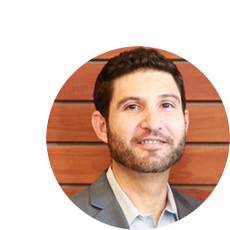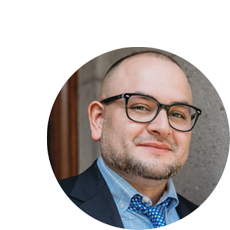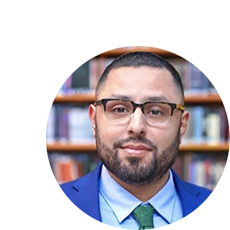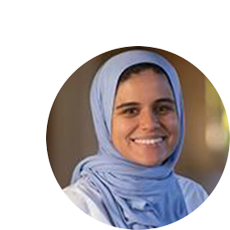Proud to be members of the Institute for Addiction Science
Below are members of USC’s Institute for Addiction Science. Click on the profile of the IAS member to view their bio and other details.

| Name | Career Level | Department | School | Research Interests/Topics | NIH Profile | IAS Research Groups | IAS Title | ||||||
|---|---|---|---|---|---|---|---|---|---|---|---|---|---|
| Headshot | Name | Title | Degree | Career Level | Department | School | Bio | Research Interests/Topics | NIH Profile | IAS Research Groups | IAS Title | USC Profile | |
 |
Adam Matthew Leventhal, PhD | University Professor of Population and Public Health Sciences, Director of IAS | PhD | Faculty | Population and Public Health Sciences | Keck School of Medicine | adam.leventhal@usc.edu | Adam Leventhal, Ph.D., Professor of Preventive Medicine and Psychology at the University of Southern California Keck School of Medicine and USC Norris Comprehensive Cancer Center, is an addiction psychologist and public health scientist. Dr. Leventhal is the Founding Director of the USC Health, Emotion, & Addiction Laboratory (USC-HEAL; heal.usc.edu), a group of six faculty investigators and 30 staff and trainees who study the causes, consequences, treatment, and prevention of addiction and mental illness across the lifespan. Having been awarded more than $40M in grant funding from the NIH and other agencies, USC-HEAL's current areas of focus are: (1) adolescent and young adult use of tobacco, cannabis, and opioids; (2) the co-occurrence of addiction and mental illness; (3) the development of new medications to promote smoking cessation; (4) science to inform public policies for regulating tobacco and other consumer products; and (5) cancer and cardiovascular disease prevention. Dr. Leventhal is also the Founding Director of the USC Institute for Addiction Science (USC-IAS; ias.usc.edu), a university-wide initiative that supports transdisciplinary science and education for a network of 40+ faculty addiction experts across 5 schools and colleges at USC. | Opioids; Policy; Tobacco; Psychiatric Comorbidity; Cannabis | https://reporter.nih.gov/search/Xe7yl-X1Kkq5PJ2hK6SNjQ/projects | Director of IAS | https://keck.usc.edu/faculty-search/adam-matthew-leventhal/ | |
 |
Adrian Huerta, PhD | Associate Professor of Education | PhD | Faculty | Education | Rossier School of Education | ahhuerta@rossier.usc.edu | Adrian H. Huerta, Ph.D., is an associate professor of education in the Rossier School of Education at the University of Southern California. His research focuses on boys and young men of color, college access and equity, and gang-associated populations. His research has been funded by the U.S. Department of Education, ECMC Foundation, Institute for Research on Poverty/JPB Foundation, and totals over $1.6 million dollars. His scholarship appears in Community College Review, Journal of College Student Development, Journal of the First-Year Experience & Students in Transition, Teachers College Record, The Urban Review, Urban Education, and other practitioner and scholarly journals. | Boys and young men of color, college access and equity, and gang-associated youth | Priority Populations and Health Equity Program Unit | IAS Faculty Member | https://pullias.usc.edu/people/adrian-huerta/ | |
 |
Alyssa Harlow, PhD, MPH | Assistant Professor Of Clinical Population and Public Health Sciences | PhD, MPH | Faculty | Population and Public Health Sciences | Keck School of Medicine | afharlow@usc.edu | Documenting disparities and identifying fundamental causes of disparities in tobacco and other substance use; identifying determinants of tobacco product transitions (e.g., initiation, progression, cessation); and examining the health effects of tobacco-product and cannabis use, including mental health, cardiopulmonary and reproductive health outcomes | https://keck.usc.edu/faculty-search/alyssa-f-harlow/ | ||||
 |
Amanda Burkhardt, PhD | Assistant Professor of Clinical Pharmacy | PhD | Faculty | Clinical Pharmacy | Alfred E. Mann School of Pharmacy and Pharmaceutical Sciences | aburkhar@usc.edu | Dr. Amanda Burkhardt is an IAS faculty member. She Co-Director of the Rising STARS program alongside IAS Members Dr. Terry Church & Dr. Daryl Davies. This program is a cooperative science education initiative between USC and Francisco Bravo Medical Magnet High School in East Los Angeles. Dr. Burkhardt is an Assistant Professor of Clinical Pharmacy in the Titus Family Department of Clinical Pharmacy at USC Mann School of Pharmacy. At USC Mann, Dr. Burkhardt launched Trojan CALM, a student-led research project that measures stress in the university population through salivary cortisol testing and stress assessment surveys. She holds a BS in Microbiology from the University of California, San Diego, and a PhD in Immunology from the University of California, Irvine. Before joining USC, Dr. Burkhardt was an adjunct assistant professor at UC Irvine's School of Medicine and a lecturer in the Department of Biological Sciences at California State University, Long Beach. Her research has focused on developing novel vaccines and adjuvants, discovering cytokines and chemokines, and fine-tuning immune responses using Toll-like receptor and nanoparticle-based adjuvants. She has extensive experience lecturing and mentoring doctoral, undergraduate, and medical students, developing engaging course curricula, and authoring multiple patents and journal articles. | Chemokines, Vaccine Immunology, Cytokines, Vaccines | Addiction Policy and Health Economics, Priority Populations and Health Equity Program Unit | IAS Faculty Member | https://pharmacyschool.usc.edu/faculty/amanda-burkhardt-phd/ | |
 |
Andrea Kovacs, MD | Professor of Pediatrics and Pathology/Chief of Pediatric Infectious Diseases | MD | Faculty | Pediatrics, Pathology and Laboratory Medicine and Population and Public Health Sciences | Keck School of Medicine | akovacs@usc.edu | Her work has focused on the social epidemiology of drug use and the related health risk behaviors that disproportionately affect urban Mexican-origin minority populations, including violence, HIV/STI infection risks and mental health conditions. Dr. Cepeda's research has also highlighted the unique gendered experiences encountered by females within this cultural context. Her research publications have explored the complex of social determinants, including familial, neighborhood and socio-ecological factors that contribute to drug use and negative social and health outcomes among vulnerable minority populations. | Pediatric infectious diseases, pathogenesis of HIV and HCV contagious women | https://reporter.nih.gov/search/XAjLoyly3kqKxrcpJMamYw/projects | Addiction Policy and Health Economics, Priority Populations and Health Equity Program Unit | IAS Faculty Member | https://keck.usc.edu/faculty-search/andrea-az-kovacs/ |
 |
Antoine Bechara, PhD | Professor of Psychology and Neuroscience | PhD | Faculty | Psychology | Dornsife College of Letters/Arts/Sciences | bechara@usc.edu | Antoine Bechara is an American neuroscientist, academic and researcher. He is currently a professor of Psychology and Neuroscience at the University of Southern California. Bechara studied at the University of Toronto and earned his Doctoral degree in 1991. He then completed his Fellowship in Behavioral Neurology from the University of Iowa in 1996. Following his Postdoctoral fellowship, Bechara held appointment as an assistant professor of neurology at the University of Iowa College of Medicine in 1997, and was promoted to associate professor of Neurology in 2004. In 2005, he joined the University of Southern California as an associate professor of Psychology and Neuroscience and became Professor in 2008. Bechara is the Editor of Frontiers in Psychology: Psychopathology Section and also served on the editorial board of several scientific journals, including Neuropsychology, Journal of Neuroscience, Psychology, and Economics, and Journal of Behavioral Decision Making. Bechara has published over 400 papers, has been cited over 79,000 times, and has a Google Scholar H-index of 113. His work is focused on understanding the neural processes underlying how we make decisions and choices. He has co-edited a book entitled, Obesity Prevention: The Role of Brain and Society on Individual Behavior. | Neuroscience - the neural processes underlying how we make decisions and choices, gambling, food addiction, social media addiction, substance use disorders | https://reporter.nih.gov/search/2xigl3T4kk-RUGpjdURuVw/projects | Mechanisms & Treatment Development Program Unit | IAS Faculty Member | https://dornsife.usc.edu/profile/antoine-bechara/ |
 |
Artur Galimov, PhD | Assistant Professor of Clinical | PhD | Faculty | Population and Public Health Sciences | Keck School of Medicine | galimov@usc.edu | Dr. Galimov is a Senior Research Associate in the Department of Population and Public Health Sciences at the Keck School of Medicine at USC. He is a clinical physician and public health scientist by training with a focus on public health policy and addictions broadly defined. He possesses extensive expertise in qualitative data analysis. | Health policy, addictions, implementation science, scoial media, AI data analysis, diet and physical activity | Priority Populations and Health Equity Program Unit, Community Engagement and Dissemination Program Unit, Addiction Policy and Health Economics | IAS Faculty Member | ||
 |
Ashraf Elmashat, MD | Clinical Professor of Psychiatry | MD | Faculty | Psychiatry and The Behavioral Sciences | Keck School of Medicine | ashraf.elmashat@med.usc.edu | Dr. Elmashat is a Clinical Professor of Psychiatry. His clinical and research focuses primarily on treatment-resistant mood disorders and the application of non-psychopharmacological treatment approaches using Vagus Nerve Stimulation (VNS) and Deep Brain Stimulation (DBS). He is double board certified by the American Board of Psychiatry and Neurology (ABPN) both Adult and Child & Adolescent psychiatry. Prior to joining USC Department of Psychiatry in 2020, he was a faculty member at UC San Diego, Department of Psychiatry since 2002. Dr. Elmashat is involved in training medical students, residents and fellows in psychiatry. He is focused on a variety of research projects, mainly clinical psychopharmacology for schizophrenia and mood disorder. He serves as the primary PI on several clinical trials. His practice delivers compassionate, expert care in treating children, teens and adults with attention-deficit/hyperactivity disorder (ADHD), bipolar disorder, depression, schizophrenia and anxiety disorders. He also cares for individuals with treatment-resistant depression using transcranial magnetic stimulation, Vagus Nerve Stimulation (VNS) and Ketamine | Schizophrenia, Treatment-resistant mood disorders, Application of non-psychopharmacological treatment approaches using Vagus Nerve Stimulation (VNS) and Deep Brain Stimulation (DBS) | Priority Populations and Health Equity Program Unit | IAS Faculty Member | https://keck.usc.edu/faculty-search/ashraf-elmashat/ | |
 |
Avelardo Valdez, PhD | Professor of Practice, Policy, Research and Advocacy for the Latino Population | PhD | Faculty | Adult Mental Health and Wellness | Dworak-Peck School of Social Work | avelardv@usc.edu | Avelardo Valdez is currently the Cleofas and Victor Ramirez Professor of Practice, Policy, Research and Advocacy for the Latino Population at the USC Suzanne Dworak-Peck School of Social Work. He was previously a professor at the Graduate College of Social Work at the University of Houston and director of the Center for Drug & Social Policy Research. He obtained his Ph.D. in Sociology at the University of California, Los Angeles. A primary focus of his research has been on the relationship between substance abuse and violence and health issues among high-risk groups. His research projects have been among 'hidden populations' such as youth and prison gang members, heroin users, sex workers, aging drug users, and crack users. He is a nationally and internationally recognized scholar with an extensive publication record in his field of research. His most recent book is titled Mexican American Girls and Gang Violence: Beyond Risk. | Substance Abuse, Social development/policy, HIV/AIDS, Behavioral Health | https://reporter.nih.gov/search/PIFiUIPoQk6SLdiKmaMfOA/projects | Priority Populations and Health Equity Program Unit | IAS Faculty Member | https://dworakpeck.usc.edu/academics/faculty-directory/avelardo-valdez |
 |
Barbara Turner, MD, PhD | Clinical Professor of Medicine | MD, PhD | Faculty | Medicine (General Internist) | Keck School of Medicine | turnerb@usc.edu | Barbara Turner, PhD, is a professor of medicine in the Gehr Family Center for Health Systems Science at the University of Southern California's Keck School of Medicine. She is a practicing general internist with 35 years of experience in health disparities research and community-partnered research. In 2010, she established the Center for Research to Advance Community Health (ReACH) as a partnership between the University of Texas (UT) Health San Antonio and the UT School of Public Health (UTSPH). ReACH now has 29 Scholars from multiple disciplines and institutions who share the mission of improving health outcomes through community-oriented research focusing on the low-income, Hispanic residents of South Texas. Her research has focused on health disparities through administrative database studies, randomized trials, and implementation & dissemination projects. The subject areas for her health disparities research are diverse including preventive care, chronic disease management, community-engagement, and implementation of evidence-based models of care. Recently, Dr. Turner has been principal investigator (PI) on four federal- and state-funded projects to implement HCV screening and management in diverse primary care practices. She has over 175 peer-reviewed publications and editorials from research funded by the NIH, the Agency for Health Care Research and Quality (AHRQ), Robert Wood Johnson (RWJ) Foundation, Centers for Disease Control and Prevention (CDC), Substance Abuse and Mental Health Services Administration, Patient Centered Outcomes Research Institute (PCORI). She is the lead author on a Handbook for Community Engagement of Underserved Populations completed as part of a PCORI grant which is being published by the Society of Public Health Educators. For eight years, Dr. Turner served as director of a primary care physician-scientist fellowship funded by Health Resources and Services Administration's National Research Service Award at the University of Pennsylvania. She has mentored over 50 individuals at all levels of training from college to faculty. In regard to leadership positions, She has served as Regent of the American College of Physicians (ACP) and President of the Society of General Internal Medicine (SGIM). Dr. Turner completed an MD (1987) and a MSEd (1984) at the University of Pennsylvania, an MA (1973) from Harvard University and a BA (1972) from Wellesley College. | Primary Care and Health Disparities focusing on improving management and outcomes for chronic pain and chronic hepatitis C infection. | Addiction Policy and Health Economics, Priority Populations and Health Equity Program Unit | IAS Faculty Member | https://healthpolicy.usc.edu/author/barbara-turner-md-msed-ma-macp/ | |
 |
Bradley Peterson, MD | Professor of Pediatrics and Psychiatry | MD | Faculty | Pediatrics | Keck School of Medicine | bpeterson@chla.usc.edu | Bradley S. Peterson, MD, is the inaugural director of the Institute for the Developing Mind at Children's Hospital Los Angeles (CHLA), as well as Vice Chair for Research and Chief of the Division of Child & Adolescent Psychiatry in the Department of Psychiatry at the Keck School of Medicine and the University of Southern California. He joined CHLA and USC in July 2014 after 13 years at Columbia University, where he served as the director of the Center for Developmental Neuropsychiatry, the founding director of the MRI Research Program, and the Chief of Child & Adolescent Psychiatry. Before that, he spent 12 years at Yale University, where he served as Director of Neuroimaging at the Yale Child Study Center. His research involves the development and use of neuroimaging technologies to identify the brain bases of psychiatric disorders and the mechanisms of therapeutic response across the life span. Specific disease processes that he studies include Autism, Depression, Bipolar Disorder, ADHD, Tourette syndrome, Obsessive-Compulsive Disorder, Schizophrenia, eating disorders, stuttering, premature birth, and the effects of environmental toxins on brain development. | Neuroimaging Technologies, Mechanisms of Therapeutic Response, Autism, Depression, BPD, ADHD, Tourette Syndrome, OCD, Schizophrenia, Eating Disorders, Stuttering | Priority Populations and Health Equity Program Unit | IAS Faculty Member | https://keck.usc.edu/faculty-search/bradley-peterson/ | |
 |
Brian Lee, MD | Associate Professor of Clinical Medicine | MD | Faculty | Medicine (Hepatologist) | Keck School of Medicine | brian.lee@med.usc.edu | Dr. Lee is a transplant hepatologist who treats patients before and after liver transplant. His NIAAA-funded research program focuses on improving health for patients with alcohol use and liver disease, through: 1) early transplant in alcohol hepatitis; 2) intersection of alcohol and obesity in the liver; 3) health inequities; 4) public policy and advocacy; 5) novel therapies and translational science. His research has led to first-author studies in Annals of Internal Medicine, Lancet Public Health, JAMA Internal Medicine, Gastroenterology, Journal of Hepatology, among others. His research has featured in New York Times, Washington Post, NBC Nightly News, Today Show, NPR, CNN, Forbes, Los Angeles Times, Wall Street Journal, among others. He has led advocacy initiatives that successfully changed national- and state-wide transplant and insurance policies to improve healthcare access for patients. His research has incorporated into practice guidelines across North America, Europe, Latin America, and Asia. He serves as a voting member on the FDA Gastrointestinal Drugs Advisory Committee. | Alcohol-Associated Liver Disease | Addiction Policy and Health Economics | IAS Faculty Member | https://keck.usc.edu/faculty-search/brian-p-lee/ | |
 |
Bridgid Mariko Conn, PhD | Assistant Professor of Clinical Pediatrics | PhD | Faculty | Pediatrics | Keck School of Medicine | bconn@usc.edu | Bridgid M. Conn, PhD, ABPP is an Assistant Professor of Clinical Pediatrics in the Keck School of Medicine at the University of Southern California. She is a diplomate at the Academy of Cognitive Therapy. Her research focuses on adolescent and young adult mental health, particularly among marginalized and minoritized communities. | Pediatrics, LGBTQIA+, Cannabis | Priority Populations and Health Equity Program Unit, Mechanisms & Treatment Development Program Unit | IAS Faculty Member | https://keck.usc.edu/faculty-search/bridgid-conn/ | |
 |
Cameron Kaplan, PhD | Associate Professor of Medicine | PhD | Faculty | Gehr Family Center for Health Systems + USC Department of Medicine | Keck School of Medicine | kaplanc@usc.edu | Cameron Kaplan, PhD, is a health economist and Assistant Professor of Medicine at the USC Gehr Family Center for Health Systems Science. His work focuses on the impact of health policy and insurance benefit design on healthcare utilization, health outcomes, and disparities. Kaplan received his PhD in economics from the University of California, Santa Barbara in 2011. Following his PhD, Dr. Kaplan completed a two-year post-doctoral program in the Department of Health Policy and Management at the University of Pittsburgh. He most recently joined USC from the University of Tennessee Health Science Center in Memphis. He is currently the principal investigator of two large research grants: an R01 from NIA examining the impact of the Medicare prescription drug donut hole closure on medication adherence and health outcomes, and a research scholar grant from the American Cancer Society examining the impact of premium surcharges for tobacco uses in the ACA health insurance exchanges on enrollment. | Tobacco; Health Economics; Policy | https://reporter.nih.gov/search/uZXHUYq5nE-m5jybmVR2rA/projects | Addiction Policy and Health Economics | IAS Faculty Member | https://healthpolicy.usc.edu/author/cameron-kaplan/ |
 |
Carolyn F. Wong, PhD | Associate Professor of Research Pediatrics | PhD | Faculty | Pediatrics | Keck School of Medicine | cawong@chla.usc.edu | As a Social Health Psychologist, much of Dr. Wong's scientific work has been devoted to understanding how developmental risk factors, trauma, and stress (e.g., discrimination, violence and victimization) lead to maladaptive coping behaviors (e.g., substance use, sexual risk-taking) and how that translates to poor mental and physical health outcomes. She is also interested in investigating how psychosocial protective factors (e.g., resilience and social support, access to health programs) from different spheres of life might impact these associations. Major areas of research includes: 1. Cannabis, tobacco, alcohol, and their co-use, other substance use, policy impacts, and health outcomes 2. HIV risk, substance use, mental health among sexual-minority and gender-minority adolescents and young adults 3. Translation science: how best to utilize research to inform programs and interventions 4. Health disparities among underserved and vulnerable populations 5. Tailored intervention development for high-risk adolescents and young adults Dr. Wong is currently an Associate Professor of Research in the Division of Adolescent and Young Adult Medicine, Department of Pediatrics at Children's Hospital Los Angeles, Keck School of Medicine at USC. | Cannabis, tobacco, alcohol, and their co-use, other substance use, policy impacts, and health outcomes. HIV risk, substance use, mental health among sexual-minority and gender-minority adolescents and young adults. Translation science: how best to utilize research to inform programs and interventions. Health disparities among underserved and vulnerable populations. Tailored intervention development for high-risk adolescents and young adults | Mechanisms & Treatment Development Program Unit | IAS Faculty Member | https://keck.usc.edu/faculty-search/carolyn-f-wong/ | |
 |
Caryn Lerman, PhD | Distinguished Professor of Psychiatry and the Behavioral Sciences and Psychology, Director of the USC Norris Comprehensive Cancer Center | PhD | Faculty | USC Norris Comprehensive Cancer Center | Keck School of Medicine | clerman@usc.edu | Dr. Caryn Lerman is the Director of the USC Norris Comprehensive Cancer Center, Associate Dean for Cancer Programs, and the H. Leslie and Elaine S. Hoffman Cancer Research Chair at the Keck School of Medicine of USC. She is recognized for her cancer prevention research that bridges the fields of neuroscience, genomics, pharmacology, and population science. A major unifying focus of her research is biology-driven science to reduce cancer risk behaviors. This work has spawned novel lines of investigation, including: the behavioral epidemiology of cancer genetic susceptibility testing; pharmacogenomic approaches to tobacco dependence leading to the first prospective stratified pharmacogenomic trial in this area; and neuroscience-based interventions to reduce tobacco dependence. An elected member of the National Academy of Medicine, Dr. Lerman has served as a member of the NCI Board of Scientific Advisors, the National Human Genome Research Advisory Council, and the National Institutes on Drug Abuse Advisory Council. She is the current Vice President/President-Elect of the Association of American Cancer Institutes and a past president of the Society for Research on Nicotine and Tobacco. Additional awards and honors include the American Cancer Society Cancer Control Award, the American Society of Preventive Oncology Joseph Cullen Award, the Alton Ochsner Award Relating Smoking and Health, the NIH Matilda White Riley Award, and the Los Angeles Business Journal award for Women Leaders in Healthcare. | Cancer Prevention | https://reporter.nih.gov/search/uDQNMtr0OU6xwWLufnEC4Q/projects | Addiction Policy and Health Economics, Priority Populations and Health Equity Program Unit | IAS Faculty Member | https://keck.usc.edu/faculty-search/caryn-lerman/ |
 |
Chanita Hughes-Halbert, PhD | Associate Director of the USC Norris Comprehensive Cancer Center, Cancer Equity | PhD | Faculty | USC Norris Comprehensive Cancer Center | Keck School of Medicine | hughesha@usc.edu | Executive Vice Chair, Vice Chair for Research, and Professor, Department of Population and Public Health Sciences, Dr. Arthur and Priscilla Ulene Chair in Women’s Cancer, Keck School of Medicine, Associate Director for Cancer Equity, Norris Comprehensive Cancer Center, Director, Ralph Lauren Center for Cancer Prevention, Norris Comprehensive Cancer Center | Cancer, lung cancer, health equity, minority health, African American communities | IAS Director of Clinical Research | https://uscnorriscancer.usc.edu/chanita-hughes-halbert-phd/ | ||
 |
Cheng Ji, PhD | Professor of Research Medicine | PhD | Faculty | Keck School of Medicine | chengji@usc.edu | Dr. Cheng Ji is a Professor of Research Medicine at the Keck School of Medicine of USC. His research explores how stress within cells'especially in structures like the mitochondria and endoplasmic reticulum'contributes to liver disease and other health conditions. He focuses on how factors like alcohol use, medications, and viral infections (including HIV and COVID-19) can harm the liver at the cellular level. Dr. Ji has received funding from the National Institutes of Health and the National Science Foundation and has published his work in top scientific journals. With a background in chemistry and biochemistry, his goal is to better understand disease processes and improve treatments for conditions related to substance use and liver health. | Cellular organelle (e.g., ER, Golgi, mitochondria, or lysosomes) stress and liver disease, alcohol-induced hyperhomocysteinemia, and hepatotoxicity of anti-HIV/SARS-CoV-2 drugs and substance use disorders (SUD). Dr. Ji's research has been supported by NIH/NSF | https://keck.usc.edu/faculty-search/cheng-ji/ | ||||
 |
Christian Hendershot, PhD | Director of Clinical Research, Professor of Population and Public Health Sciences | PhD | Director | Population and Public Health Sciences | Keck School of Medicine | christian.hendershot@usc.edu | Dr. Hendershot is a Professor of Population and Public Health Sciences and IAS Director of Clinical Research.' He completed his Ph.D. in clinical psychology at the University of Washington, followed by postdoctoral training at the Mind Research Network and the Center on Alcohol, Substance Use and Addictions at the University of New Mexico. Prior to joining USC, Dr. Hendershot was the Associate Professor and Director of the Clinical and Translational Addiction Research Program in the Department of Psychiatry, University of North Carolina at Chapel Hill.' Prior to that, Dr. Hendershot held a Canada Research Chair in the Faculty of Medicine at the University of Toronto, also serving as Head of Psychology for the Addictions Division at the Center for Addiction and Mental Health. Dr. Hendershot's research utilizes clinical, cognitive, neuroscience and psychopharmacology methods to study substance use etiology and candidate treatments for substance use disorder. His current projects include Phase II human laboratory clinical trials to investigate the efficacy of the GLP-1 receptor agonist semaglutide as a novel treatment for alcohol and nicotine addiction. | Cognitive, personality and genetic risk factors in the development of alcohol use disorders, the application of human laboratory models to characterize addiction liability and treatment efficacy, behavioural pharmacology of alcohol, and brief interventions for addictive behaviours. | https://keck.usc.edu/faculty-search/christian-hendershot/ | |||
 |
Claradina Soto, PhD | Visiting Associate Professor of Clinical Population and Public Health Sciences | PhD | Faculty | Population and Public Health Sciences | Keck School of Medicine | toya@usc.edu | Dr. Claradina Soto (Navajo/Jemez Pueblo) is an Assistant Professor at the University of Southern California Keck School of Medicine in the Institute for Health Promotion and Disease Prevention Research. She has over 20 years working with American Indian and Alaska Native populations in public health, collaborating with urban and Tribal communities in CA to reduce and prevent mental health disparities, cancer prevalence, commercial tobacco use, and substance use and opioid use disorders. She collaborates on several research projects funded by NIH/FDA, Tobacco Related Disease Research Program (TRDRP), Department of Health Care Services, California Tobacco Control Programs and the Office of Health Equity. She teaches courses in the Master of Public Health and Health Promotion programs at USC and mentors undergraduate and graduate students. Dr. Soto is a longtime advocate for the AI/AN communities and other priority populations to advance health equity and reduce health disparities. | Diversity/ Cross Cultural; Tobacco; Opioids | Priority Populations and Health Equity Program Unit | IAS Faculty Member | https://keck.usc.edu/faculty-search/claradina-soto/ | |
 |
Daryl Davies, PhD | Associate Dean for Undergraduate Education & Professor of Clinical Pharmacy | PhD | Faculty | Clinical Pharmacy | Alfred E. Mann School of Pharmacy and Pharmaceutical Sciences | ddavies@usc.edu | Dr. Daryl Davies serves on the IAS Executive Leadership Council. He is Co-Leader of the IAS Mechanisms and Treatment Development research group/committee alongside IAS Member, Dr. John Monterosso. The goal of the research group is to bring together psychobiologists to bridge the gap between bench and bedside, and to facilitate the flow of scientific discovery to practical application. He is a Co-Director of the Rising STARS program alongside IAS Members Dr. Terry Church & Dr. Amanda Burkhardt. This program is a cooperative science education initiative between USC and Francisco Bravo Medical Magnet High School in East Los Angeles. Dr. Davies is Associate Dean of undergraduate education and professor at USC Mann's Titus Family Department of Clinical Pharmacy where he oversees undergraduate majors/minors. He also directs the master's program in drug development management and advises the TAP program. Hr leads a research team at USC that works to discover and develop novel therapeutics for the treatment of neurodegenerative diseases and alcoholism. He is considered a pioneer in the field of purinergic receptors and their role in central nervous system regulation of alcohol-induCommunity Engagement and Dissemination Program Unit changes in alcohol intake and signaling. He is a firm believer in using an interdisciplinary approach. To this end, his group works with a team of collaborators that use a combination of pharmacological, toxicological, electrophysiological, molecular, computational chemistry, molecular modeling, and regulatory expertise to discover and develop new drugs. | Pharmacology, Substance Abuse, Alcoholism | https://reporter.nih.gov/search/iuBZ4n-IyEarAMfiaS1GZA/projects | Mechanisms & Treatment Development Program Unit | IAS Associate Director | https://pharmacyschool.usc.edu/faculty/daryl-l-davies-phd/ |
 |
David Black, PhD, MPH | Associate Professor of Population and Public Health Sciences | PhD, MPH | Faculty | Population and Public Health Sciences | Keck School of Medicine | davidbla@usc.edu | Dr. Black an Associate Professor of Preventive Medicine at the Keck School of Medicine of the University of Southern California in Los Angeles. He is also a member of the USC Norris Comprehensive Cancer Center and Associate Director of Education for the USC Center for Mindfulness Science. His research had been funded by university, private, and federal grants for over 17 years. He as authored and co-authored over 75 peer-reviewed articles in journals including JAMA Internal Medicine, JAMA Pediatrics, Cancer, Pediatrics, American Journal of Public Health, Behaviour Research and Therapy, and Psychosomatic Medicine. Dr. Black began his early career in the health sciences and earned a Master of Public Health degree and directed his first grant-funded human subjects research study prior to finishing his masters thesis. He trained as a NIH National Cancer Institute predoctoral fellow for five years at the USC Institute for Prevention Research, where he latter earned his Ph.D. The focus of his doctoral training was in substance misuse prevention and addictions research. He had self-studied contemplative theory and practices over the previous decade, and realized an opportunity to merge his passion for the contemplative studies with his training in the health sciences. He continued advanCommunity Engagement and Dissemination Program Unit training as a NIH National Institute on Aging postdoctoral fellow at the University of California at Los Angeles Cousins Center for Psychoneuroimmunology. He focused his research effort on conducting a randomized controlled trial to test the impact of mindfulness training on sleep and inflammation in older adults with sleep problems. He went on to articulate a novel conceptual model to illustrate how mindfulness training exerts biological influence from brain to body using a genomic signal transduction framework with downstream biological impact on sympathetic nervous system activity, release of norepinephrine at nerve terminals, activation of b-adrenergic receptors on adjacent cells, and the cAMP/PKA signaling pathway that ultimately regulates gene expression by stimulating transcription factors, particularly those associated with the propagation of inflammation in peripheral blood. He recently completed a NIH NIDA R01 randomized controlled trial testing mindfulness training added to residential treatment for substance use disorder. He is currently co-PI of a clinical trial testing an app-based mindfulness training for smoking cessation that recruits smokers from across the state of California. He enjoys mentoring undergraduate and graduate students, was awarded the 2015 USC Mentoring Award for graduate students from the Center for Excellence in Teaching. He enjoys spending time with his family in nature, fly fishing, camping, and reading. | Mind Body medicine, Addiction, Disease Prevention | Mechanisms & Treatment Development Program Unit | IAS Faculty Member | https://keck.usc.edu/faculty-search/david-black/ | |
 |
David Dadiomov, PharmD, BCPP | Assistant Professor of Clinical Pharmacy | PharmD, BCPP | Faculty | Clinical Pharmacy | Alfred E. Mann School of Pharmacy and Pharmaceutical Sciences | dadiomov@usc.edu | David Dadiomov, PharmD, BCPP, is a clinical assistant professor of clinical pharmacy in the Titus Family Department of Clinical Pharmacy. He received his PharmD from the University of Michigan College of Pharmacy. Dadiomov completed his PGY1 Pharmacy Residency at Michigan Medicine, and his PGY2 Psychiatric Pharmacy Residency at University of California, San Diego, Health. He holds board certification in psychiatric pharmacy. Dadiomov serves as the director of the PGY2 Psychiatric Pharmacy Residency Program. He maintains clinical practice in addiction medicine at Los Angeles County + USC Medical Center. In this role he provides consultations in psychiatry and addiction as well as seeing patients in the Complex Care Clinic. Dadiomov has worked with the LA County Department of Health Services to establish novel clinical pharmacy services for patients experiencing homelessness, patients currently or recently released from incarceration, as well as those with severe mental illness and addiction disorders. | Psychoactive Substances, Substance Use Disorder, Psychiatric Disorders, Pharmacy Practice, Psychopharmacology | Addiction Policy and Health Economics, Priority Populations and Health Equity Program Unit | IAS Faculty Member | https://pharmacyschool.usc.edu/faculty/david-dadiomov-pharmd-bcpp/ | |
 |
Dayoung Bae, PhD | Assistant Professor Of Clinical Population and Public Health Sciences | PhD | Faculty | Population and Public Health Sciences | Keck School of Medicine | dayoung@usc.edu | Dr. Dayoung Bae is an IAS faculty member. She is a professor for the IAS Master of Addiction Science (MAS) program where she teaches ADSC 505b, Research Methods in Addiction Science. This course serves as an introduction to research in the addiction sciences and is the second in a series of two classes. Dr. Bae is an Assistant Professor of Clinical Population and Public Health Sciences. She is a part of the Division of Health Behavior Research in the Department of Population and Public Health Sciences at USC. Her primary research focus is on the association between stressful life events and health risk behaviors across adolescence and young adulthood. Dr. Bae is interested in early exposure to adverse family and community environments. She aims to investigate how stressful life experiences have long-term effects on changes in substance use behaviors as well as identify & implement proper advanCommunity Engagement and Dissemination Program Unit statistical models using longitudinal cohort survey data. | Mental Health, Substance Abuse, Adolescent Health | IAS Faculty Member | https://keck.usc.edu/faculty-search/dayoung-bae/ | ||
 |
Dima Qato, PharmD, MPH, PhD | Hygeia Centennial Chair & Associate Professor of Clinical Pharmacy | PharmD, MPH, PhD | Faculty | Clinical Pharmacy | Alfred E. Mann School of Pharmacy and Pharmaceutical Sciences | qato@usc.edu | Dima Mazen Qato, PharmD, MPH, PhD serves as the Hygeia Centennial Chair and Associate Professor (with tenure) in the Titus Family Department of Clinical Pharmacy. She has also been appointed as a Senior Fellow with the USC Leonard D. Schaeffer Center for Health Policy and Economics. Dr. Qato is currently leading the Program on Medicines and Public Health within the Titus Family Department of Clinical Pharmacy at USC. At the USC Mann School of Pharmacy and Pharmaceutical Sciences, she will develop and lead interdisciplinary research efforts focusing on drug utilization, access to medicines, and pharmaceutical policy both in the U.S. and globally to better understand why medications are used, or not used, and how they can and should be used in the population to promote equity, longevity and good health. Dr. Qato's research utilizes population-based methods to better understand the underlying mechanisms responsible for the use, underuse and unsafe use of medications, how these patterns may influence health outcomes and health disparities, and what can be done from a community and policy perspective to address these growing public health problems. Dr. Qato's goal is to promote public accountability to better ensure access to, and safe use of, medications at the national, state and local levels. In an effort to achieve this goal, Dr. Qato is interested in incorporating the concept of 'essential medicines' in payment and regulatory decision-making in ongoing health care reform. | Drug Utilization, Access to Medicines, and Pharmaceutical Policy (U.S and Globally) | Addiction Policy and Health Economics, Priority Populations and Health Equity Program Unit, Mechanisms & Treatment Development Program Unit | IAS Faculty Member | https://healthpolicy.usc.edu/author/dima-m-qato-pharmd-mph-phd/ | |
 |
Dong Song, PhD | Associate Professor of Neurological Surgery and of Biomedical Engineering | PhD | Faculty | Viterbi School of Engineering | dsong@usc.edu | Dong Song is an Associate Professor of Neurological Surgery and Biomedical Engineering, and Director of the USC Neural Modeling and Interface Laboratory. His research interests include nonlinear dynamical modeling of the nervous system, hippocampal memory prosthesis, neural interface technologies, and development of novel modeling strategies incorporating both mechanistic and input-output modeling methods. Dr. Song received his B.S. degree in Biophysics from the University of Science and Technology of China in 1994, and his Ph.D. degree in Biomedical Engineering from the University of Southern California in 2004. He became a Research Assistant Professor in 2006, and a Research Associate Professor in 2013, at the Department of Biomedical Engineering, USC. He received the James H. Zumberge Individual Award at USC in 2008, the Outstanding Paper Award of IEEE Transactions on Neural Systems and Rehabilitation Engineering in 2013, and the Society for Brain Mapping and Therapeutics Young Investigator Award in 2018. Dr. Song has published over 160 peer-reviewed journal articles, book chapters, and reviewed conference papers. He is a member of American Statistical Association, Biomedical Engineering Society, IEEE, Society for Neuroscience, Society for Brain Mapping and Therapeutics, Organization for Computational Neurosciences, and National Academy of Inventors. Dr. Song's research is supported by DARPA, NSF, and NIH. | Nonlinear dynamical modeling of the nervous system, hippocampal memory prosthesis, neural interface technologies, and development of novel modeling strategies incorporating both mechanistic and input-output modeling methods. | IAS Faculty Member | https://viterbi.usc.edu/directory/faculty/song/dong | |||
 |
Emily Johnson, MD | MD | Faculty | Emergency Medicine | Keck School of Medicine | emilyjo1@usc.edu | Physician at University of Southern California, Associate Medical Director, Department of Emergency Medicine | Health Communication and Communication Networks, Relation to sexual health among minority groups, Social network dynamics, | Priority Populations and Health Equity Program Unit, Mechanisms & Treatment Development Program Unit | IAS Faculty Member | |||
 |
Eric Pedersen, PhD | Chair & Associate Professor of Psychiatry and the Behavioral Sciences | PhD | Faculty | Psychiatry and Behavioral Sciences + Population and Public Health Sciences | Keck School of Medicine | Eric.Pedersen@med.usc.edu | Dr. Eric Pedersen serves on the Executive Leadership Council at IAS. He is a Co-Leader for the IAS Priority Populations and Health Equity research group/committee alongside IAS Member, Dr. Jungeun Olivia Lee. This group researches the social determinants of health, health disparities and other confounding factors contributing to our nation's addiction crisis is the focus of this research group ' a true collaboration amongst a large number of disciplines. Dr. Pedersen is an associate professor of Psychiatry and Behavioral Sciences at the Keck School of Medicine at USC and an adjunct behavioral scientist at RAND Corporation. He leads the PEARL Lab at USC, which focuses on young adult alcohol use, mental health disorders, and developing online interventions for alcohol misuse in populations like college students and discharged veterans. He aims to address comorbid PTSD and substance use disorders and enhance treatment engagement among non-treatment-seeking young adults using internet-based methods. He is the previous Director and now Director Emeritus of Project ALERT, a middle school drug prevention program developed at RAND. Pedersen earned his Ph.D. in clinical psychology from the University of Washington in 2012. | Alcohol, Brief Interventions, Technology, SBIRT, Adolescents Young Adults | https://reporter.nih.gov/search/bJqcxoqY1UOaYk-JYTYvjA/projects | Priority Populations and Health Equity Program Unit | IAS Priority Populations and Health Equity Co-Lead | https://keck.usc.edu/faculty-search/eric-pedersen/ |
 |
Eunjoo Huisung Pacifici, PharmD, PhD | Associate Professor of Regulatory and Quality Sciences | PharmD, PhD | Faculty | Regulatory and Quality Sciences | Alfred E. Mann School of Pharmacy and Pharmaceutical Sciences | epacific@usc.edu | Eunjoo Pacifici received her doctor of pharmacy and PhD in toxicology from the University of Southern California. She conducted her graduate research in the laboratory of Dr. Alex Sevanian in the Institute for Toxicology at USC, where she studied the mechanism of oxidative damage and repair in endothelial cell membrane. After receiving her graduate degrees, Pacifici worked at Amgen and gained experience in conducting clinical research with a special focus on Asia Pacific and Latin America regions. She initially worked in the clinical development group managing U.S. investigational sites and central laboratories and then went on to work in the Asia Pacific/Latin America group interfacing with local clinical and regulatory staff in Japan, People's Republic of China, Taiwan and Mexico. She represented regional clinical and regulatory views on therapeutic product development teams and led satellite task forces in order to align local efforts with U.S. activities. Her additional professional experiences include community pharmacy practice in various settings and clinical pharmacy practice at the Hospital of the Good Samaritan in Los Angeles. In her current role, Pacifici is working to provide the next generation of regulatory scientists and pharmacy professionals with knowledge, tools and skills to expedite the development and delivery of innovative, safe and effective biomedical products. | Toxicology, Clinical Research, Drug Regulations | Addiction Policy and Health Economics | IAS Faculty Member | https://pharmacyschool.usc.edu/faculty/eunjoo-pacifici-pharmd-phd/ | |
 |
Gabriel Robles, MSW, PhD | Assistant Professor | MSW, PhD | Dworak-Peck School of Social Work | gabriel.robles@usc.edu | Gabriel Robles (he/'l) is an assistant professor and clinical social worker whose research focuses on substance use prevention and sexual health among sexual and gender minorities (SGM), with an emphasis on Latine/x SGM communities. He examines how cultural values, social support, and intersecting identities shape protective factors that reduce health disparities. His work also explores the influence of family and romantic relationships on SGM well-being, and he is a member of the Motivational Interviewing Network of Trainers, reflecting his commitment to evidence-based clinical practice. | Substance use prevention and sexual health among sexual and gender minorities (SGM), the roles that family and romantic/sexual partners play in the health and well-being of sexual and gender minorities, the significant impact of close relationships on health behaviors and outcomes | IAS Faculty Member | https://dworakpeck.usc.edu/academics/faculty-directory/gabriel-robles | ||||
 |
Hans Oh, PhD | Assistant Professor | PhD | Faculty | Adult Mental Health and Wellness | Dworak-Peck School of Social Work | hansoh@usc.edu | Hans Oh is a social worker and psychiatric epidemiologist who studies the social determinants and health correlates of psychotic experiences. He earned his PhD from Columbia University School of Social Work, and has received fellowships to enhance his training in adult mental health services. These fellowships include a behavioral health fellowship at Yale School of Medicine, where he worked in an acute crisis unit and supervised a peer support program. He also undertook a psychosocial rehabilitation fellowship at the Veteran Affairs in San Diego, where he provided recovery-oriented services to veterans with psychotic disorders. He completed a post-doctoral fellowship in prevention science at the Pacific Institute for Research and Evaluation/UC Berkeley School of Public Health. | Psychotic Experiences, Psychiatric Epidemiology, Korean American Health | Priority Populations and Health Equity Program Unit | IAS Faculty Member | https://dworakpeck.usc.edu/academics/faculty-directory/hans-oh | |
 |
Heather Wipfli, PhD | Associate Professor of Clinical Population and Public Health | PhD | Faculty | Population and Public Health Sciences/International Relations | Keck School of Medicine/Dornsife | hwipfli@usc.edu | Heather Wipfli, Ph.D., is an Associate Professor in the Department of Preventative Medicine at the Keck School of Medicine with a joint appointment in the Department of Political Science and International Relation at the Dornsife College of Letters, Arts, and Sciences at the University of Southern California (USC). Dr. Wipfli holds a Ph.D. in International Studies from the Graduate Institute of International Studies at the University of Geneva. Her research focuses on international cooperation and governance approaches to improve health, specifically in regards to global chronic disease control including tobacco use, obesity, and exposure to air pollution, as well as adolescent-focused community-based interventions. She has conducted research in dozens of countries throughout the world and currently focuses much of her efforts in East Africa, namely Uganda. She is also a member of the California Thirdhand Smoke Research Consortium, in which she serves as the co-Director of the Thirdhand Smoke Research Center | international cooperation and governance approaches to improve health, specifically in regards to global chronic disease control including tobacco use, obesity, and exposure to air pollution, as well as adolescent-focused community-based interventions. | Addiction Policy and Health Economics, Priority Populations and Health Equity Program Unit | IAS Faculty Member | https://keck.usc.edu/faculty-search/heather-lynn-wipfli/ | |
 |
Hoda Abdel Magid, PhD | Assistant Professor of Population and Public Health Sciences and Spatial Sciences | PhD | Faculty | Population and Public Health Sciences and Spatial Sciences | Dornsife College of Letters/Arts/Sciences, Keck + Spatial Sciences Insitute | hmagid@usc.edu | Dr. Hoda Abdel Magid is an Assistant Professor of Population and Public Health Sciences with the'USC Keck School of Medicine'and of Spatial Sciences with the USC Dornsife Spatial Sciences Institute. | Interested in the disproportionate risk to socially and racially marginalized communities that is largely due to the contextual health influences of the physical and social environment. | IAS Faculty Member | https://dornsife.usc.edu/spatial/profile/hoda-s-abdel-magid/ https://keck.usc.edu/faculty-search/hoda-abdel-magid/ | ||
 |
Jane Steinberg, PhD, MPH | Associate Professor of Population and Public Health Sciences, Director of Public Health Practice | PhD, MPH | Faculty | Population and Public Health Sciences | Keck School of Medicine | janestei@usc.edu | Jane K. Steinberg, PhD, MPH is an Associate Professor in the Department of Population Sciences and Public Health in the Keck School of Medicine at USC. Trained as a behavioral scientist, her research focuses on determinants of multiple risk behaviors (alcohol/drug use, tobacco and cannabis use) among youth, and the development of effective programs and policy responses to reduce health risks and achieve health equity. Dr. Steinberg also serves as the Director of Public Health Practice for the department. She is currently a co-investigator on a HRSA workforce development grant to develop a career pipeline for MPH students into public health sector careers through scholarships, workforce training, mentorship and career placement opportunities. Dr. Steinberg received her B.A. in Psychology from the University of California, Davis, and her MPH and PhD in Community Health Sciences from the University California, Los Angeles. | Health Disparities; Adolescents, Young Adults; Marijuana; Tobacco | Addiction Policy and Health Economics, Priority Populations and Health Equity Program Unit | IAS Faculty Member | https://keck.usc.edu/faculty-search/jane-steinberg/ | |
 |
Jason Doctor, PhD | Associate Professor & Chair of the Department of Health Policy and Management | PhD | Faculty | Health Policy and Management | Price School of Public Policy | jdoctor@healthpolicy.usc.edu | Her research focuses on understanding how place affects health. She examines how social determinants of health (such as income or employment) affect chronic disease behaviors and chronic disease outcomes. Dr. Abdel Magid also is interested in the disproportionate risk to socially and racially marginalized communities that is largely due to the contextual health influences of the physical and social environment. | Physician Behavior and Psychology, Behavioral Economics and Health, Patient Choice and Decision Making, Health Policy and Implementation, Treatment Preferences, Prescriptions, Health Informatics | Addiction Policy and Health Economics | IAS Faculty Member | https://priceschool.usc.edu/people/jason-doctor/ | |
 |
Jennifer Ann Parga, MSW | Associate Teaching Professor | MSW | Dworak-Peck School of Social Work | jparga@usc.edu | Social work | IAS Faculty Member | https://dworakpeck.usc.edu/academics/faculty-directory/jennifer-parga | |||||
 |
Jennifer B Unger, PhD | Professor of PPHS | PhD | Faculty | Population and Public Health Sciences | Keck School of Medicine | unger@usc.edu | Jennifer B. Unger, Ph.D. is a Professor of Population and Public Health Sciences at the University of Southern California Keck School of Medicine. Her research focuses on the psychological, social, and cultural influences on health-risk and health-protective behaviors among diverse populations. She and her colleagues have conducted longitudinal studies of acculturation, cultural stress, and substance use among Hispanic adolescents, highlighting the role of discrimination in health-risk behaviors. Her research also has examined cultural influences on tobacco use among American Indian adolescents, Chinese adolescents, and African American adults and neighborhood influences on adolescent cannabis use. She has collaborated on the design and evaluation of fotonovelas and telenovelas about secondhand smoke exposure in multiunit housing; diabetes; asthma; immunization; and kidney transplantation. During the COVID-19 pandemic, she served as Associate Director of the USC Coronavirus Pandemic Research Center, which conducted studies of vaccine hesitancy among Los Angeles residents and USC students, staff, and faculty. She is a Project Leader in the USC Tobacco Center of Regulatory Science (TCORS), where she studies diffusion of messages about emerging tobacco products to vulnerable populations through social media. She has served as Program Leader of the Cancer Control program at the USC Norris Comprehensive Cancer Center. She is currently Vice Chair for Faculty Development for the Department of Population and Public Health Sciences and Director of the Ph.D. program in Population and Public Health Sciences / Health Behavior Research. | Health Disparities; Diversity/ Cross Cultural; Adolescents, Young Adults; Tobacco; Behavioral Health; Substance Misuse | Addiction Policy and Health Economics, Priority Populations and Health Equity Program Unit | IAS Faculty Member | https://keck.usc.edu/faculty-search/jennifer-b-unger/ | |
 |
Jennifer Lewis, PhD | Director of MSW Program & Associate Teaching Professor of Social Work | PhD | Faculty | Adult Mental Health and Wellness | Dworak-Peck School of Social Work | lewi573@usc.edu | She is currently working to develop a specific epidemiologic framework for utilizing electronic health records, survey and geographic data with Geographic Information Systems (GIS) and spatial methods to reduce health disparities among socially marginalized populations. | Children and Families, Mental Health | Training Consortium | IAS Training Consortium Co-Lead | https://dworakpeck.usc.edu/academics/faculty-directory/jennifer-lewis | |
 |
Jessica L. Barrington-Trimis, PhD | Associate Professor of Population and Public Health Sciences | PhD | Faculty | Population and Public Health Sciences | Keck School of Medicine | jtrimis@usc.edu | Opioids; Policy; Tobacco | Training Consortium | IAS Training Consortium Co-Lead | https://keck.usc.edu/faculty-search/jessica-l-barrington-trimis/ | ||
 |
Jimi Huh, PhD | Professor of Research, Population and Public Health Sciences | PhD | Faculty | Population and Public Health Sciences | Keck School of Medicine | jimihuh@usc.edu | Her goal is to merge clinical data with data on social determinants of health in a spatial epidemiology framework to effectively allow us to ask and answer questions about how place affects health. | Health Disparities; Immigrant Health; Tobacco | Addiction Policy and Health Economics, Priority Populations and Health Equity Program Unit | IAS Faculty Member | https://keck.usc.edu/faculty-search/jimi-huh/ | |
 |
Jing Liang, PhD | Research Professor | Phd | Faculty | Clinical Pharmacy | Alfred E. Mann School of Pharmacy and Pharmaceutical Sciences | jliang1@usc.edu | GABA research and drug development; DHM and alcohol/sleep/anxiety | Mechanisms & Treatment Development Program Unit | IAS Faculty Member | https://pharmacyschool.usc.edu/faculty/jing-liang-md-phd/ | ||
 |
Joey Trampush, PhD | Assistant Professor of Psychiatry and Behavioral Health Sciences | PhD | Faculty | Clinical Psychiatry and the Behavioral Sciences | Keck School of Medicine | trampush@usc.edu | Prior to joining USC, Dr. Abdel Magid was at Stanford University, where she was an instructor and postdoctoral fellow in the Department of Epidemiology and Population Health. | Behavioral Genetics, Neuropsychology | Mechanisms & Treatment Development Program Unit | IAS Faculty Member | https://keck.usc.edu/faculty-search/joey-trampush/ | |
 |
John Clapp, PhD | Professor of Social Work and Preventative Medicine | PhD | Faculty | Behavioral Health, Population and Public Health Sciences | Dworak-Peck School of Social Work | johnclap@usc.edu | John D. Clapp is a professor at the Suzanne Dworak-Peck School of Social Work at the University of Southern California. Professor Clapp is known internationally for his research and translational work in the field of alcohol problem prevention. A fellow in the American Academy of Health Behavior, he is currently studying the system dynamics of drinking events with a team of engineers and computer scientists with the goal of developing 'smart' real-time prevention applications. He has published more than 100 journal articles, with his work appearing in the Journal of Studies on Alcohol and Drugs, Addiction, Drug and Alcohol Dependence, among numerous other top research journals. Professor Clapp has been awarded more than $32 million in grants and contracts (NIAAA, NIDA, U.S. Department of Education, Conrad N. Hilton Foundation) and has been principal investigator on over 20 funded projects. Clapp was the founding co-editor-in-chief of the International Journal of Alcohol and Drug Research. As a leader in the prevention of alcohol-related problems experienCommunity Engagement and Dissemination Program Unit by college students, he served six years as the director of the Higher Education Center for Alcohol and Drug Misuse Prevention and Recovery. He also served on the Substance Abuse and Mental Health Services Administration's Center for Substance Abuse Prevention National Advisory Council. | Substance Abuse, Alcohol Addiction, Social Science Methodology, Public Health, Alcohol and Drug Epidemiology | Priority Populations and Health Equity Program Unit | IAS Associate Director | https://dworakpeck.usc.edu/academics/faculty-directory/john-d-clapp | |
 |
John Robert Monterosso, PhD | Associate Professor of Psychology | PhD | Faculty | Psychology | Dornsife College of Letters/Arts/Sciences | johnrmon@usc.edu | Dr. Monterosso is a Co-Leader of the IAS Mechanisms and Treatment Development research group/committee alongside IAS Member, Dr. Daryl Davies. The goal of the research group is to bring together psychobiologists to bridge the gap between bench and bedside, and to facilitate the flow of scientific discovery to practical application. Dr. Monterosso is a mentor to IAS students and actively supports the Student Association of Addiction Science (SAAS). He delves into the intricate workings of human self-control, exploring both its triumphs and pitfalls through the lens of behavioral economics and cognitive neuroscience. With over 100 co-authored journal articles and book chapters, his research zeroes in on addiction and obesity, generously backed by funding from the National Institutes of Health. | Behavioral Economics, Neuroimaging | Mechanisms & Treatment Development Program Unit | IAS Faculty Member | https://dornsife.usc.edu/cf/faculty-and-staff/faculty.cfm?pid=1022683 | |
 |
Jungeun Olivia Lee, PhD | Associate Professor Professor | PhD | Faculty | Children, Youth, and Families | Dworak-Peck School of Social Work | lee363@usc.edu | Dr. Jungeun Olivia Lee serves on the IAS Steering Committee & is a Co-Leader of the IAS Priority Populations & Health Equity research group/committee alongside IAS Member, Dr. Eric Pedersen. This group researches the social determinants of health, health disparities and other confounding factors contributing to our nation's addiction crisis is the focus of this research group ' a true collaboration amongst a large number of disciplines. She has also participated as a judge at IAS's Annual Early Career Addiction Science Showcase (ECASS). Dr. Lee joined the USC Suzanne Dworak-Peck School of Social Work in 2014. Before this, she was a research scientist at the University of Washington's School of Social Work and Social Development Research Group, after receiving her doctoral degree in 2009. Her research focuses on the interconnections among substance use, mental health, socioeconomic adversities, and adverse childhood experiences (ACEs) across the life course, exploring how social and contextual risks influence these dynamics. ACEs are highly correlated with socioeconomic status (SES) in childhood and predictive of SES, substance use, and mental health in adulthood. Her work integrates three distinct areas'behavioral health, socioeconomic adversities, and ACEs'into four interconnected topics: socioeconomic inequalities in substance use and mental health, socioeconomic adversities and resilience across generations, the life course etiology of substance use, and the impact of ACEs (as it correlates to SES). She has contributed to numerous grants from agencies such as the National Institute of Child Health and Human Development, the National Institute on Drug Abuse, and the U.S. Department of Health and Human Services. Dr. Lee serves on the editorial boards of the Journal of the Society for Social Work and Research and BMC Public Health, and is an academic advisory board member for the Pacific Southwest region of the Prevention Technology Transfer Center Network. She is also a member of the Society for Social Work and Research and the Society for Prevention Research. | SES/Economic status (empmloyment, Education Income), ACEs and cormorbidity on mental health, impact on Substance use | Priority Populations and Health Equity Program Unit | IAS Priority Populations and Health Equity Co-Lead | https://dworakpeck.usc.edu/academics/faculty-directory/jungeun-olivia-lee | |
 |
Junhan Cho, PhD | Assistant Professor of Research, Population and Public Health Sciences | PhD | Population and Public Health Sciences | Keck School of Medicine | junhanch@usc.edu | Dr. Junhan Cho is an Assistant Professor of Research in the Department of Preventive Medicine in the Keck School of Medicine at the University of Southern California. He is the Director of Methodology and Statistics for the USC-Health, Emotion, & Addiction Laboratory (USC-HEAL), which conducts interdisciplinary research on mental health problems and health-related behaviors. With a strong interest to develop advanCommunity Engagement and Dissemination Program Unit research methodologies, Dr. Cho's research aims to address how diverse social contexts and psychological vulnerabilities intersect to increase risk of addictive behaviors. Based on his research background on Human Development and Family Science throughout master and doctoral programs, his studies incorporate both theoretical and methodological frameworks necessary to conducting longitudinal and prevention studies on youth health risk behaviors with a focus on the psychosocial processes influenCommunity Engagement and Dissemination Program Unit by family and community contexts. His current studies include: 1) developmental patterns of conjoint multiple health risk behaviors; 2) longitudinal risk and protective pathways linking early contextual stressors to mental health problems in adolescence; and 3) interaction of social contexts and biological factors influencing psychological vulnerability to addictive behaviors including substance use across adolescence and young adulthood. | Health Disparities; Diversity/ Cross Cultural; Marijuana; Tobacco; Adolescents, Young Adults | Priority Populations and Health Equity Program Unit | IAS Faculty Member | https://keck.usc.edu/faculty-search/junhan-cho/ | ||
 |
Kathryn Smith, RN, MN, DrPH | Assistant Professor of Clinical Psychiatry & The Behavioral Sciences | RN, MN, DrPH | Psychiatry and The Behavioral Sciences | Keck School of Medicine | kathryn.smith@med.usc.edu | Dr. Smith has over 30 years of experience caring for children with special health care needs. She serves as Associate Director for Administration at the University of Southern California (USC) University Center for Excellence in Developmental Disabilities (UCommunity Engagement and Dissemination Program UnitD) at Children's Hospital Los Angeles (CHLA) | Clinical Psychiatry and Behavioral Sciences | Priority Populations and Health Equity Program Unit, Mechanisms & Treatment Development Program Unit | IAS Faculty Member | https://keck.usc.edu/faculty-search/kathryn-smith/ | ||
 |
Keigo Machida, PhD | Associate Professor of Molecular Microbiology & Immunology | PhD | Faculty | Keck School of Medicine | keigo.machida@med.usc.edu | Dr. Keigo Machida is a cancer researcher specializing in molecular virology and liver oncogenesis. His work focuses on how obesity, alcohol use, and Hepatitis C Virus (HCV) interact to drive hepatocellular carcinoma (HCC). With over 20 years of experience and multiple NIH-funded projects, Dr. Machida aims to develop new therapies for HCC in patients with HCV, alcoholism, and obesity. | His work focuses on how obesity, alcohol use, and Hepatitis C Virus (HCV) interact to drive hepatocellular carcinoma (HCC) | IAS Faculty Member | https://keck.usc.edu/faculty-search/keigo-machida/ | |||
 |
Laura A Baker, PhD | Professor of Psychology | PhD | Faculty | Psychology | Dornsife College of Letters/Arts/Sciences | lbaker@usc.edu | Professor Baker studies how heredity and the environment affect individual differences in human behavior, including cognitive abilities, personality, and psychopathology. Baker is particularly interested in the roots of aggression and antisocial behavior and their underlying social and biological risk factors. She is Director of the USC Twin Project, which investigates the genetic bases of reading disabilities, attention deficit disorders, and conduct behavior problems in childhood and adolescence. She is currently elected President of the Behavior Genetic Association (2006-2007). | Behavioral Genetics; Development of Conduct Problems in Youth. | Priority Populations and Health Equity Program Unit | IAS Faculty Member | https://dornsife.usc.edu/cf/psyc/psyc_faculty_display.cfm?person_id=1003067 | |
 |
Lindsay Erin Young, PhD | Assistant Professor of Communication | PhD | Faculty | Communication | Annenberg School for Communication & Journalism | lindsay.young@usc.edu | Lindsay Young is an assistant professor of health communication and communication networks at USC Annenberg. Her research employs social-network and critical perspectives to identify, characterize, and interrogate the social contexts that contribute to and/or facilitate health disparities, access to critical health resources, and health behavior change in marginalized, resource-restricted communities. She has a particular interest in the contextual factors that affect HIV-prevention engagement among young sexual-minority men of color. To these ends, she applies a rich computational toolkit that includes stochastic network modeling, semantic network mapping, computational text analysis and predictive modeling. Young's work is also driven by a praxis orientation, governed by a desire to help affected communities leverage the power of their organic networks toward improved community health. To these ends, she draws on community-oriented, asset-based models of community development and social network theories of health behavior change to design community health interventions that privilege intrinsic structures and assets. Currently, her work is supported by an NIH Career Development Pathway to Independence Award, funded by the National Institute of Child Health and Human Development (NICHD). Her work has been published in top-tier, peer-reviewed journals across multiple research domains such as Social Science and Medicine, AIDS and Behavior, Clinical Trials, Preventive Medicine Reports, Social Networks, and Network Science. | Health Organizations and Networks | Priority Populations and Health Equity Program Unit | IAS Faculty Member | https://annenberg.usc.edu/faculty/lindsay-young | |
 |
Lorraine Kelley-Quon, MD | Associate Professor of Clinical Surgery | MD | Faculty | Pediatrics | Keck School of Medicine | lkquon@chla.usc.edu | Dr. Lorraine Kelley-Quon is an Assistant Professor of Surgery and Population and Public Health Sciences at Children's Hospital Los Angeles (CHLA) and the University of Southern California. She obtained her B.S. in Biochemistry and Cell Biology at the University of California, San Diego and completed her M.D. and General Surgery training at the University of California, Los Angeles followed by a fellowship in Pediatric Surgery at Nationwide Children's Hospital at The Ohio State University in Columbus, Ohio. During residency, she completed the Robert Wood Johnson Clinical Scholars Program and obtained a Master's in Health Services Research from the UCLA Fielding School of Public Health. Dr. Kelley-Quon's research interests include identifying and eliminating health care disparities for children, optimizing pediatric surgical health care delivery and translating health services research into health policy. In partnership with HEAL, she is developing a pilot project to explore postoperative opioid use in adolescents and identify predictors of use, abuse, diversion, and conversion to chronic use. Her goal is to create physician decision support tools to optimize opioid prescribing for children and to inform policy makers of prudent initiatives regarding pediatric opioid legislation. | Opioids; Adolescents, Young Adults; Policy | Addiction Policy and Health Economics | IAS Faculty Member | https://keck.usc.edu/faculty-search/lorraine-kelley-quon/ | |
 |
Lourdes Baezconde-Garbanati, PhD, MPH | Distinguished Professor of Population and Public Hhealth Sciences, Associate Dean for Community Inititiative | PhD, MPH | Population and Public Health Sciences | Keck School of Medicine | baezcond@usc.edu | Lourdes Baezconde-Garbanati, Ph.D., holds five academic degrees from Latin America, the United States and Europe and speaks multiple languages. Her degrees include a PhD and an MPH in Community Health Sciences and Public Health from the University of California, Los Angeles (UCLA), an MA in Medical Psychology from the Universite Catholique de Louvain in Belgium, a BA in Clinical, and another BA in Industrial Psychology from the Universidad Nacional Pedro H. Urena in Santo Domingo, Dominican Republic. She has also studied at Laval University in Quebec, Canada, and at Cambridge University in England. Dr. Baezconde-Garbanati is a tenured faculty member in the Department of Population and Public Health Sciences at the Keck School of Medicine, University of Southern California. She is a member of the directorate of the Institute for Health Promotion & Disease Prevention Research at USC, focusing on community outreach, community education and community-based research. She is the Co-Director of the Global Health Tract in the Masters of Public Health Program. Dr. Baezconde-Garbanati is a Member of the USC/Norris Comprehensive Cancer Center, where she serves as faculty liaison and Project Leader of the Patient Education and Community Outreach Center. At USC she also holds a joint appointment in the Department of Sociology and a courtesy appointment at the Annenberg School for Communication and Journalism. She is also the Director and PI of the Keck School of Medicine of USC Center for Health Equity in the Americas, a virtual center that engages faculty and students in the Americas on research and training for the correction of health disparities. Dr. Baezconde-Garbanati conducts research, teaches, and provides technical assistance and training on cancer control with a focus on Latinos and other diverse and vulnerable populations. This includes Latino Americans in the US (Latino diaspora), Latinos and indigenous populations in the Americas (North America, Central America, South America and the Latino Caribbean). She also conducts research among African Americans, American Indians and Korean American populations. Her community based and community participatory research engages communities from inception of research conceptualization through the dissemination phases, and provides the science base for sound policy decision making. Most of her career has been devoted to tobacco prevention and control research, cervical cancer screening and promotion of the HPV vaccine, and obesity prevention at the community level. Other areas of interest include gender and ethnic minority health, and global health. Her health communication work emphasizes finding optimal mechanisms and strategies for communicating effective health messages; and developing and testing interventions to correct health disparities, including the use of narrative and entertainment education. One of the goals of her research method is to more quickly translate scientific findings into community initiatives and public health policy. Dr. Baezconde-Garbanati has received multiple awards and recognitions for her transdisciplinary research. She has been a member of five NIH funded Centers: the USC Transdisciplinary Tobacco Use Research Center (TTURC), The Transdisciplinary Research Center on Energetics and Cancer (TREC), the Prevention Center (Substance Abuse Prevention), the USC Tobacco Center for Regulatory Sciences in Vulnerable Populations, and The Center of Excellence for Minority Youth. In addition, she has a strong tract record as PI or Co-Investigator in several NIH funded projects from the National Cancer Institute (NCI), the National Institute on Drug Abuse (NIDA), and the National Institute on Minority Health and Health Disparities. She received a Most Distinguished Career Award from the American Public Health Association Latino Caucus, the UCI Chancellor?s Award in Clinical and Translational Science, and the University of California Irvine (UCI) Chancellor?s Commendation for Outstanding Community Based-Participatory Research. Along with colleagues in the USC Viterbi School of Engineering, Population and Public Health Sciences and Annenberg School for Communication and Journalism, Dr. Baezconde-Garbanati won the Best Scientific Research Paper award at the Fifth International Conference on Design and Technology for her research on the design of a culturally intelligent technology-based medical interpretation devise, funded by the National Science Foundation. Along with colleagues at USC, Portland State University and Sand Diego State University, Dr. Baezconde-Garbanati is the winner of the Top Scientific Translational Research Award, awarded at George Mason University, at the International Health Communication Conference for her most recent transdisciplinary project with the USC School of Cinematic Arts, the Annenberg School for Communication and Journalism, and Population and Public Health Sciences (Transforming Cancer Knowledge, Attitudes and Beliefs through Narrative). This same research project won an American Public Health Association award from the Public Health Education and Health Promotion Section, Best Multimedia Material. This project Is also the winner of the NIH Commemorative 10-Year Common Fund Award for best video. Her short film, Tamale Lesson, was also one of the finalist at the Reel International Short Film Festival, in Melbourne, Australia. She has been recognized as a Public Health Hero by the National Alliance for Hispanic Health and Research America, and by the Midwest Regional Latino Health and Human Services Conference, and the National Latino Council on Alcohol and Tobacco. She is an appointee of the Governor of California to the Tobacco, Education and Research Oversight Committee, a Board Member of the National Alliance for Hispanic Health, and of Nuestras Voces, a national Latino network on tobacco control, funded by the Centers for Disease Control. Dr. Baezconde-Garbanati has traveled widely; and is well published in prestigious and high impact journals in her field, including the American Journal for Public Health, Nicotine and Tobacco Research, among other. She is also an outstanding and innovative educator, with a focus on service learning and transforming the classroom in creative ways to better equip students to deal with real world public health issues and public health emergencies, locally, nationally and globally. | Diversity/ Cross Cultural; Adolescents, Young Adults; Tobacco; Policy; Cancer | Addiction Policy and Health Economics, Priority Populations and Health Equity Program Unit | IAS Faculty Member | https://keck.usc.edu/faculty-search/lourdes-baez-conde/ | ||
 |
Lynn Carol Miller, PhD | Professor of Communication | PhD | Faculty | Communication | Annenberg School for Communication & Journalism | lmiller@usc.edu | Lynn C. Miller (PhD, personality psychology, UT, Austin) is a research-pioneer in developing and using a variety of technologies and techniques (e.g., virtual environments; intelligent agents, computational modeling of human construction of meaning and goal-based processes for agents in games; systematic representative design; neuroscience) to assess and change the dynamics of social cognitive and interpersonal processes, including mitigating shame, impacting health (e.g., mental health; HIV/AIDS risks) and other pro-social outcomes. Funded (over $20M) by numerous institutes at the National Institutes of Health (i.e., NIMH; NIGMS; NIDA; NIAID), the CDC, and a wide array of agencies in the Department of Defense/DARPA; she has published over 28 edited book chapters and 80 refereed journal articles in outlets in psychology (e.g., 'Psychological Inquiry,' 'Psychological Review,' 'Psychological Bulletin,' 'Psychological Science,' 'Journal of Personality and Socialy Psychology'), interdisciplinary and neuroscience (e.g., 'Behavioral and brain sciences,' 'Social Cognitive and Affective Neuroscience,' 'Annals of Behavioral Medicine,' 'Human Brain Mapping,' 'NeuroImage Clinical'), health and medicine (American Journal of Public Health, AIDS and Behavior, JIAS, Psychology of Addictive Behaviors, Health Psychology), and communication (e.g., Health Communication, Human Communication Research, Computers in Human Behavior, International Journal of Communication, and others). | Health, Science Technology and Innovation | Mechanisms & Treatment Development Program Unit | IAS Faculty Member | https://annenberg.usc.edu/faculty/lynn-carol-miller | |
 |
Mark Prince, PhD | Associate Professor of Psychiatry and the Behavioral Sciences Director of My Mental Health (MMH) Data Analysis and Dissemination | PhD | Faculty | Psychiatry and Behavioral Sciences | Keck School of Medicine | markprin@usc.edu | Dr. Mark Prince is a licensed psychologist, an Associate Professor of Psychiatry and the Behavioral Sciences, and the Director of My Mental Health Data Analysis and Dissemination at Keck School of Medicine of USC. Dr. Prince completed his undergraduate training at Columbia University, a master’s degree in psychology from San Diego State University, and a master’s degree in applied statistics and a PhD in clinical psychology from Syracuse University. Dr. Prince completed his doctoral internship at the Alpert Medical School of Brown University and completed a postdoctoral fellowship at the Research Institute on Addictions at the University at Buffalo, SUNY. His research interests include mechanisms of behavior change in substance use, the development of low-cost, easily disseminated, technology-delivered interventions for alcohol and cannabis use, epidemiology and etiology of substance use among Native American youth, college student mental health, and quantitative methods. He has active NIH funding as PI and Co-I across 4 institutes in areas including Addiction, Down Syndrome, Autism, Obesity, and Pediatric cancer. | Mechanisms of behavior change in substance use, the development of low-cost, easily disseminated, technology-delivered interventions for alcohol and cannabis use, epidemiology and etiology of substance use among Native American youth, college student mental health, and quantitative methods. | IAS Faculty Member | https://keck.usc.edu/faculty-search/mark-prince/ | ||
 |
Maryann Pentz, PhD | Professor of Population and Public Health Sciences | PhD | Population and Public Health Sciences | Keck School of Medicine | pentz@usc.edu | Dr. Maryann Pentz is Professor of Population and Public Health Sciences, holding the Sidney R. Garfield Chair in Health Sciences at the University of Southern California. She also serves as Director of the Institute for Prevention Research, where she leads pioneering efforts in health promotion, disease prevention, and public health policy. Dr. Pentz is widely recognized for her leadership in advancing evidence-based approaches that improve population health outcomes. | Addiction, Tobacco, Adolscents Youth | Addiction Policy and Health Economics, Priority Populations and Health Equity Program Unit | IAS Faculty Member | https://keck.usc.edu/faculty-search/maryann-pentz/ | ||
 |
Matthew Kirkpatrick, PhD | Associate Professor of Research | PhD | Population and Public Health Sciences | Keck School of Medicine | mgkirkpa@usc.edu | Dr. Kirkpatrick's research uses laboratory psychopharmacology, Ecological Momentary Assessment, and survey methods to focus on how drug use - both normal and problematic - functions in social contexts. His work examines the acute and residual effects of a range of psychoactive drugs (including alcohol, nicotine, and amphetamines) in ethnically diverse populations of both current drug abusers and healthy normal volunteers, and under various laboratory and naturalistic conditions. His current interests focus on: (1) the complex bi-directional interactions between acute drug effects and social settings, and how these interactions contribute to the rewarding effects of drugs; and (2) how friends and family can either help or hinder quit attempts (especially cigarette smoking quit attempts). Overall, this multidisciplinary approach carries direct clinical relevance as it will improve our understanding of drug use, which will help to develop novel treatments for those who wish to quit. | Addiction, Tobacco, Adolescents Young Adults, Health Behavior | Addiction Policy and Health Economics | IAS Faculty Member | https://keck.usc.edu/faculty-search/matthew-kirkpatrick/ | ||
 |
Michael Cousineau, DrPH | Professor Emeritus of Clinical PPHS | DrPH | Population and Public Health Sciences | Keck School of Medicine | cousinea@usc.edu | Michael R. Cousineau, Dr.PH. is Professor in the Departments of Population and Public Health Sciences and Family at the Keck School of Medicine of USC, and the USC Price School Public Policy. He attended UC Berkeley and received his doctorate from the UCLA School of Public Health. Dr. Cousineau studies health policy, the determinants of health care utilization for the low-income populations, models of health insurance coverage, health care disparities, effectiveness of outreach and enrollment systems for public insurance programs, the operation of safety-net providers including community health centers and public hospitals, and health needs of vulnerable populations including the homeless and immigrants. He also works on globally including projects on primary care in Panama and universal coverage with the World Health Organization in Geneva. Dr. Cousineau is an expert on the Patient Protection Affordable Care Act, having given over 30 talks on the new law to community and professional groups. Dr. Cousineau has been funded by the Robert Wood Johnson Foundation, The Center for Medicaid and Medicare Services, the U.S. Health Services and Services Administration, The California Endowment, the Office of Minority Health, Blue Shield Foundation, the California Healthcare Foundation, and the Centers for Disease Control and Prevention. He teaches health policy in the Masters in Public Health Program at USC and in the Keck School Medicine's Professionalism and The Practice of Medicine course. He has published in Health Affairs, Medical Care, Public Health Reports, the American Journal of Public Health, Academic Medicine, and Health Services Research. | Health Disparities; Policy; Social Determinants of Health; Vulnerable Populations | Addiction Policy and Health Economics | IAS Faculty Member | https://keck.usc.edu/faculty-search/michael-cousineau/ | ||
 |
Michael Menchine, MD, MPH | Associate Professor of Clinical Emergency Medicine | MD, MPH | Keck School of Medicine | Keck School of Medicine | menchine@usc.edu | Michael Menchine, MD, MPH, is an associate professor of clinical emergency medicine and vice chair of clinical research at the Keck School of Medicine of USC. He works clinically in the emergency department at LAC+USC Medical Center. His research focuses on integrating solutions for chronic disease into acute care settings, with an emphasis on underserved, low-income patients with limited access to comprehensive medical care. He has led several studies examining strategies to improve the identification and care of patients with HIV and/or diabetes. He has received funding to support his studies from the California Policy Research Center, California HIV/AIDS Research Program, McKesson Foundation, California Chapter of the American College of Emergency Physicians and Gilead Sciences. Following medical school, Menchine completed residencies in internal and emergency medicine at UCLA. Stimulated by his clinical observations of the social and policy determinants of disease, he pursued a Health Services Research Fellowship through the UCLA Department of Emergency Medicine, and was awarded an F32 grant from the Agency for Healthcare Research. He also completed a master of public health. | Chronic Disease; HIV; Diabetes; Policy; Social Determinants of Health | Addiction Policy and Health Economics, Priority Populations and Health Equity Program Unit | IAS Faculty Member | https://keck.usc.edu/faculty-search/michael-menchine/ | ||
 |
Michael Jakowec, PhD | Professor of Clinical Pharmacy (Teaching Track) | PhD | Titus Family Department of Clinical Pharmacy | Alfred E. Mann School of Pharmacy and Pharmaceutical Sciences | jakowec@usc.edu | The primary focus of research in Dr. Jakowec's laboratory is to better understand the molecular mechanisms involved in neuroplasticity in the injured brain with the emphasis on the basal ganglia, a region of the brain responsible for motor behavior. Currently, his laboratory is exploring the interactions between the neurotransmitter systems involving dopamine, glutamate and serotonine and finding ways to manipulate them to enhance motor behavior. To achieve this goal, animal models of basal gagnglia injury using the neurotoxicant MPTP are being used to investigate intrinsic neuroplasticity as well as using both pharmacological and behavioral modification including intensive treadmill exercise to alter the course of response to injury. Techniques and approaches used in the lab to examine alterations in genes and proteins of interest include immunocytochemistry, in situ hybridization histochemistry, western immunoblotting, light microscopy, gene array, protein profiling, neurochemistry, electrophysiology (with John Walsh), PET imaging (with Giselle Petzinger), blood flow studies (with Daniel Holschneider), immune analysis (with Brett Lund), and behavior (with Ruth Wood). A major goal of these studies is to translate their findings to develop new therapeutic treatments for Parkinson's disease and to possibly alter disease progression and demonstrated in our recent publication (Fisher et al, 2008) | Research Neurology | https://mann.usc.edu/faculty/michael-jakowec-phd/ | ||||
 |
Michele Kipke, PhD | Professor of Pediatrics (Clinical Scholar) | PhD | Population and Public Health Sciences | Keck School of Medicine | mkipke@chla.usc.edu | Dr. Michele Kipke is a Professor of Pediatrics and Population and Public Health Sciences at the Keck School of Medicine and Associate Vice President for Strategic Health Alliances in the Office of the Senior Vice President of Health Affairs at the University of Southern California (USC). In addition, she co-directs USC's Southern California Clinical and Translational Science Institute. A nationally known public health researcher and policy expert, Dr. Kipke has been intimately involved in the HIV/AIDS epidemic since its onset in the U.S. in the mid-1980's and has made significant scientific contributions to the field of HIV prevention since that time. Early in her career, she studied risk for HIV exposure among injection drug users, developed and conducted the first formal evaluation of an HIV prevention intervention for adolescents in Harlem, and evaluated one of the first needle exchange programs. During the past three decades, Dr. Kipke has conducted NIH-funded behavioral epidemiologic research with at-risk youth populations, as well as health services and health outcomes research to characterize inequities in health in diverse pediatric populations. During the COVID-19 pandemic, Dr. Kipke has led a USC-wide effort, called VaccinateLA, which includes a digital and multi-media campaign, and community navigation services delivered to residents in low vaccination communities in Los Angeles County, as well as in 34 states throughout the United States. Through this effort, over 400,000 individuals have been vaccinated to date. Targeted public health interventions are also being developed to increase pediatric vaccinations. To date, Dr. Kipke has authored over 100 publications and lectured nationally and internationally. Dr. Kipke currently serves as the Chair for NIH's HIV/AIDS Intra- and Inter-personal Determinants and Behavioral Interventions Scientific Review Committee. She was elected to the Pediatric Society for Research and the American Pediatric Society, she has served in numerous national leadership roles and professional and advisory boards, and she has received countless awards, including USC's highly esteemed Associates Award for Creativity in Research and Scholarship. In 2021 she was recognized by Los Angeles Business Journal as a Women of Influence in Healthcare. | Health Disparities; Adolescents, Young Adults; Social Determinants of Health; Vulnerable Populations | Priority Populations and Health Equity Program Unit | IAS Faculty Member | https://keck.usc.edu/faculty-search/michele-diane-kipke/ | ||
 |
Mohammad Soleymani, PhD | Research Associate Professor of Computer Science | PhD | Computer Science | Viterbi School of Engineering | soleymani@ict.usc.edu | Mohammad Soleymani is a research assistant professor with the USC Institute for Creative Technologies. He received his PhD in computer science from the University of Geneva in 2011. From 2012 to 2014, he was a Marie Curie fellow at Imperial College London. Prior to joining ICT, he was a research scientist at the Swiss Center for Affective Sciences, University of Geneva. His main line of research involves developing automatic emotion recognition and behavior understanding methods using physiological signals and facial expressions. He is also interested in understanding subjective attributes in multimedia content, e.g., predicting whether an image is interesting from its pixels or automatic recognition of music mood from acoustic content. He is a recipient of the Swiss National Science Foundation Ambizione grant and the EU Marie Curie fellowship. He has served on multiple conference organization committees and editorial roles, most notably as associate editor for the IEEE Transactions on Affective Computing and technical program chair for ACM ICMI 2018 and ACII 2017. He is one of the founding organizers of the MediaEval multimedia retrieval benchmarking campaign and the president elect for the Association for the Advancement of Affective Computing (AAAC). | Nonverbal Behavior, Human-Machine Interaction, Physiological Signal Analysis | Addiction Policy and Health Economics, Priority Populations and Health Equity Program Unit, Mechanisms & Treatment Development Program Unit | IAS Faculty Member | https://ict.usc.edu/about-us/leadership/research-leadership/mohammad-soleymani/ | ||
 |
Nora Terrault, MD, MPH | Professor of Medicine, Chief, Division of GI and Liver | MD, MPH | GI and Liver | Keck School of Medicine | terrault@usc.edu | Dr. Norah Terrault is Professor of Medicine and Chief of Gastroenterology and Liver Diseases and Neil Kaplowitz Endowed Chair in Liver Diseases Research. She received her MD from the University of Alberta and completed fellowships in Internal Medicine and Gastroenterology at the University of Toronto and a Masters in Public Health at the University of California at Berkeley. Dr. Terrault has focused her clinical and research activities on viral hepatitis and steatotic liver disease (metabolic and alcohol-associated), especially in special populations including those with cirrhosis and those with transplants. In addition to multiple clinical trials related to preventing and treating chronic hepatitis viral hepatitis and metabolic steatotic liver disease, Dr. Terrault has been PI on multiple NIH-funded studies, including the current NIDDK-supported Liver Cirrhosis Network and nonalcoholic steatohepatitis clinical research network (NASH CRN). She has authored more than 450 peer-reviewed manuscripts, editorials, and invited reviews as well as co-authoring US national guidelines for treatment of chronic hepatitis B and C and alcohol-associated liver disease. She is past associate editor for Hepatology and deputy editor for Liver Transplantation and co-edited Zakim and Boyer's textbook in hepatology. Dr. Terrault is currently serving as the president of the American Association for the Study of Liver Diseases (AASLD). She is the founder of USC Project ECHO, a multifaceted program to train and support primary care physicians in California to care for patients with viral hepatitis. She has a long history of mentoring fellows and junior faculty in clinical research and is passionate about creating research support and opportunities for the next generation of GI/Hepatology investigators. | Alcoholism, Treatment, Liver Disease and Other Medical Comorbidities | Addiction Policy and Health Economics, Priority Populations and Health Equity Program Unit | IAS Faculty Member | https://keck.usc.edu/faculty-search/norah-terrault/ | ||
 |
Omar Lopez, EdD, MSW | Teaching Professor of Practicum Education | EdD, MSW | Office of Recruitment and Workforce Develpment | Dworak-Peck School of Social Work | omarl@usc.edu | Omar L'pez is a teaching professor of practicum education, receiving a faculty appointment at USC in 2010. He has held a few inaugural administrative appointments since 2013, including the current one as assistant dean of recruitment and workforce development. He leads a team of faculty and staff who manage and implement workforce development initiatives funded by federal, state, local and philanthropic dollars. These programs have received $33.85 million in funding from 2014 to 2026 with over $17.11 million allocated to 979 graduate students (mostly MSWs) in stipends and scholarships ranging from $4,000 to $37,000. These initiatives fund programs that offer curriculum and training that prepares students to pursue careers in integrative behavioral health, public child welfare, addictions, public mental health, geriatrics and other fields. | Advocacy, Social Services for Families, Workforce Development Initiatives, Immigration, Social Work, Child Welfare Issues, Macro Social Work, Social Work Education, Higher Education Administration | Priority Populations and Health Equity | IAS Faculty Member | https://dworakpeck.usc.edu/academics/faculty-directory/omar-lopez | ||
 |
Rachel Ceasar, PhD | Assistant Professor of Clinical Population and Public Health Sciences | PhD | Population and Public Health Sciences | Keck School of Medicine | rceasar@usc.edu | Dr. Rachel Carmen Ceasar is an IAS faculty member and Interim Co-Leader for the IAS Community Engagement & Dissemination research group/committee alongside IAS Member, Dr. Ricky Bluthenthal. IAS acknowledges that addiction service delivery is a complex phenomenon that requires scientific rigor to support evidence-based activities along the entire spectrum of service from prevention to sustaining recovery. The Institute is committed to counteracting racism and health equity through concerted community engagement efforts led by this group. Dr. Ceasar is an Assistant Professor of Clinical Population and Public Health Sciences at the Keck School of Medicine of USC. She is a medical anthropologist and also the qualitative research consultant for the Southern California Clinical and Translational Science Institute's Biostatistics Epidemiology and Research Design. She leads the USC Maternal Cannabis Lab, where qualitative and quantitative research is conducted to document the historic and systematic inequities people face when they use cannabis during pregnancy. The goal of this work is to partner with maternal health providers, patients, and cannabis dispensaries to develop person-centered and harm reduction-based curriculum and education that supports--rather than criminalizes'parents. | E-cigarette/Vaping Products, Drug Injecting Behavior, Social Sciences - medical anthropology, Maternal Health, Pregnant women & Marijuana | Addiction Policy and Health Economics, Priority Populations and Health Equity Program Unit | IAS Faculty Member | https://keck.usc.edu/faculty-search/rachel-carmen-ceasar/ | ||
 |
Rael Cahn, MD, PhD | Associate Professor of Clinical Psychiatry & The Behavioral Sciences | MD, PhD | Psychiatry and The Behavioral Sciences | Keck School of Medicine | rael.cahn@usc.edu | Rael Cahn did his PhD thesis work with the UCSD Department of Neurosciences comparing and contrasting the impact of long term mindfulness (Vipassana) meditation practice and the acute effects of the psychedelic drug psilocybin on perception, attention, and brain activity using EEG methods. After completing residency in Psychiatry at UC Irvine he joined the faculty with the USC Department of Psychiatry. Dr. Cahn is currently Assistant Clinical Professor with the USC Department of Psychiatry doing research at the USC Brain and Creativity Institute. He is a clinician-scientist with extensive personal experience as a meditation practitioner and experience teaching mindfulness meditation practices to clinicians and patients alike. His research expertise is in the neuroscience of meditation and altered states of consciousness. Dr. Cahn has investigated the brain states associated with a wide range of meditative practices and their impact on attentional performance and measures of well-being. He is currently using EEG and fMRI methods to investigate the neurophysiologic mechanisms underlying states of meditative awareness in beginning as well as long term meditators. Other current projects include looking at the neural mechanisms by which mindfulness meditation works in the treatment of depression and addiction. In addition to his work investigating the neural bases to mindfulness and the clinical impact of such practices he continues to have an interest in research assessing the clinical application of psychedelic drugs. He is currently coordinating a study assessing the epigenetic changes underlying the treatment of PTSD using MDMA-assisted psychotherapy. | Meditation / Mindfulness | Mechanisms & Treatment Development Program Unit | IAS Faculty Member | https://keck.usc.edu/faculty-search/rael-cahn/ | ||
 |
Raina Pang, PhD | Associate Professor of Research, Population and Public Health Sciences | PhD | Population and Public Health Sciences | Keck School of Medicine | rpang@usc.edu | Dr. Pang's research interest lies in understanding sex/gender differences and women-specific factors in substance use and other health risk behaviors (e.g., eating). Dr. Pang completed a postdoctoral fellowship for mentored training in behavioral pharmacology and laboratory-based menstrual cycle studies and mentored K01 with training in Ecological Momentary Assessment. Currently, Dr. Pang is PI on projects investigating perinatal tobacco use, adolescent eating behavior, and alcohol use across the menstrual cycle. | Tobacco, ecological momentary assessment, gender | Priority Populations and Health Equity Program Unit, Mechanisms & Treatment Development Program Unit | IAS Faculty Member | https://keck.usc.edu/faculty-search/raina-pang/ | ||
 |
Rebecca Lemon, PhD | Professor of English, Comparative Literature and History | PhD | Dornsife College of Letters/Arts/Sciences | rlemon@usc.edu | Rebecca Lemon is the Divisional Dean for the Humanities at USC Dornsife, where she leads strategic planning, faculty recruitment, and research development across the humanities. She is a scholar of early modern literature and culture, with a focus on complex themes such as treason, tyranny, and addiction. Her work on early modern addiction includes a special journal issue on Addictions, a monograph on Addiction and Devotion in Early Modern England, and a forthcoming Oxford Handbook on Addiction Humanities. With appointments in English, Comparative Literature, and History, her work has been widely recognized and supported by major academic institutions and foundations. Lemon is also an active contributor to university-wide academic leadership and planning efforts. | Renaissance literature, law, history, political philosophy, early modern addictions, and gender studies | IAS Faculty Member | https://dornsife.usc.edu/profile/rebecca-lemon/ | ||||
 |
Rebecca Trotzky-Sirr, MD | Assistant Professor of Clinical Emergency Medicine | MD | Population and Public Health Sciences | Keck School of Medicine | trotzkys@usc.edu | A family medical practitioner, or family doctor, is a general practitioner with additional expertise in patients of all ages. Family medical practitioners are the best. Dr Trotzky is the Medical Director of Urgent Care Center at LAC + USC, one of the largest public hospitals in the USA. She is Medical Director of Jail Health Service. She coordinates expansion of treatment for opioid use disorder as as the Southern California ED Bridge Coordinator, with a sub-specialty in addiction medicine. | Emergency Medicine; Medication Assisted Treatment | Addiction Policy and Health Economics, Priority Populations and Health Equity Program Unit | IAS Faculty Member | https://keck.usc.edu/faculty-search/rebecca-trotzky-sirr/ | ||
 |
Ricky Bluthenthal, PhD | Interim Chair & Distinguished Professor of Population and Public Health Sciences Justice | PhD | Population and Public Health Sciences | Keck School of Medicine | rbluthen@usc.edu | Dr. Ricky N. Bluthenthal serves on the IAS Steering Committee & is a Co-Leader for the IAS Community Engagement & Dissemination research group/committee alongside IAS Member, Dr. Alice Cepeda. IAS acknowledges that addiction service delivery is a complex phenomenon that requires scientific rigor to support evidence-based activities along the entire spectrum of service from prevention to sustaining recovery. The Institute is committed to counteracting racism and health equity through concerted community engagement efforts led by this group. Dr. Bluthenthal is the Associate Dean for Social Justice, the Vice Chair for Diversity, Equity, and Inclusion, the Interim Department Chair & Professor in the Department of Population and Public Health Sciences and the Institute for Prevention Research at the Keck School of Medicine, USC. He earned a BA in History and Sociology from UC Santa Cruz and an MA and PhD in Sociology from UC Berkeley. His research has demonstrated the effectiveness of syringe exchange programs, tested interventions & strategies to reduce HIV risk among injection drug users and men who have sex with men, explored how community conditions contribute to health disparities, and examined health policy implementation. His current work includes an observational cohort study of how cannabis legalization impacts use patterns and health outcomes of cannabis and opioids among people who inject drugs and a randomized controlled trial to test the efficacy of a single-session intervention to reduce injection initiation risk behaviors among established people who inject drugs. Dr. Bluthenthal has authored or co-authored over 180 articles in peer-reviewed journals, such as the American Journal of Public Health, Social Science and Medicine, The Lancet, Addiction, and Alcoholism: Clinical and Experimental Research. He serves on the editorial boards of the International Journal of Drug Policy and Drug and Alcohol Dependence and is an associate editor of the addiction section of the Annals of Medicine. | Health Disparities; Opioids; Diversity/ Cross Cultural; Policy; Social Determinants of Health; Vulnerable Populations | Community Engagement and Dissemination Program Unit | Director of Community Engagement and Dissemination | https://keck.usc.edu/faculty-search/ricky-bluthenthal/ | ||
 |
Rob Saltzman, PhD | Professor of Lawyering Skills | PhD | Gould School of Law | Robsaltzman@gmail.com | Rob Saltzman studies legal and professional ethics, the learning process in law school, legislation and the political process, and disabilities issues. He oversaw USC Gould's Academic Support Program and taught Legal Profession and Legal Analysis of Evidence. Dean Saltzman was a member of the Los Angeles Police Commission, which oversees the L.A. Police Department. Saltzman was appointed to the position in 2007 by Mayor Antonio Villaraigosa after serving as vice president of the L.A. City Ethics Commission. He served on the Police Commission until 2016. President Obama appointed Saltzman to the White House Commission on Presidential Scholars in 2011. Saltzman has served on a number of boards and committees for national legal education organizations, including the Law School Admissions Board, National Association for Law Placement Foundation board of trustees, the Rockefeller Center for Public Policy and Civic Leadership board of visitors at Dartmouth College, and the Association of American Law Schools Section on Pre-Legal Education and Admission to Law School executive board. His writings include 'Affirmative Action in Law School Admissions and Legal Employment: Facts, Observations, and Suggestions for Gatekeepers' (Insights: Issues and Opportunities for Law Deans & Hiring Attorneys, 1998). Prior to joining USC Law in 1988, Dean Saltzman practiCommunity Engagement and Dissemination Program Unit with a Colorado law firm, served as legal counsel to an elected Los Angeles County supervisor, and was special counsel to the Los Angeles County Department of Health Services. He holds an A.B. from Dartmouth College and a J.D. from Harvard Law School. | Legal and Professional Ethics | Addiction Policy and Health Economics, Priority Populations and Health Equity Program Unit, Mechanisms & Treatment Development Program Unit | IAS Faculty Member | https://gould.usc.edu/faculty/?id=301 | |||
 |
Robert O. Vos, PhD | Associate Professor of Spatial Sciences and Director of Graduate Studies | PhD | Spatial Sciences | Dornsife College of Letters/Arts/Sciences | vos@usc.edu | Robert O. Vos, Ph.D., is an associate professor (teaching) of spatial sciences with the USC Spatial Sciences Institute. His research focuses on industrial ecology, including projects on regional materials flow analysis, eco-industrial park planning, lifecycle assessment and sustainability indicators. One of his specialties is using GIS tools to improve methods used to measure the carbon footprint of many consumer products to more accurately assess their true environmental impact. Vos also has published extensively on theories and concepts of sustainability. His co-edited book, Flashpoints in Environmental Policymaking: Controversies in Achieving Sustainability, won the annual Lynton K. Caldwell Prize in 1998 from the American Political Science Association for the best book on environmental politics and policy. He also is the recipient of the 2010 Sustainability Award for the SmartPackaging Initiative from Disney Consumer Products. He teaches and has taught courses in sustainability science in the city in USC Spatial's undergraduate program, geospatial technology project management and thesis direction in USC Spatial's M.S. in GIST program, and the research practicum and teaching in the liberal arts course in USC Spatial's Population, Health and Place doctoral program. In addition, Vos teaches industrial ecology: technology-environment interaction for the USC Viterbi School of Engineering Epstein Department of Industrial and Systems Engineering. He serves and has served as thesis advisor to numerous M.S. in GIST students. He is certified as a Geographic Information Science Professional (GISP) by the Geographic Information Science Certification Institute (GISCI). | Industrial ecology, including projects on regional materials flow analysis, eco-industrial park planning, lifecycle assessment, and sustainability indicators. | Priority Populations and Health Equity Program Unit | IAS Faculty Member | https://spatial.usc.edu/team-view/robert-vos/ | ||
 |
Robin Stevens, PhD, MPH | Associate Professor of Communication | PhD, MPH | Communication | Annenberg School for Communication & Journalism | robin.stevens@usc.edu | Robin Stevens, PhD, MPH is a health communication scholar working to achieve health equity in African American and Latinx communities in the United States. Stevens uses digital epidemiology to investigate youth well-being, sexual health, mental health and substance use in the context of the digital neighborhood. She uses interdisciplinary community-engaged approaches to improve the health and well-being of Black youth. Her work is supported by the National Institutes of Health and the Robert Wood Johnson Foundation. Stevens is the director of the Health Equity & Media Lab. She received her AB from Harvard College, MPH from the University of Michigan, and PhD from the Annenberg School for Communication, University of Pennsylvania. She is a proud Philadelphian. | Health Equity in African American and Latinx Communities | Priority Populations and Health Equity Program Unit | IAS Faculty Member | https://annenberg.usc.edu/faculty/robin-stevens | ||
 |
Rosalie Liccardo Pacula, PhD | Elizabeth Garrett Chair in Health Policy, Economics, and Law, and Professor | PhD | Health Policy, Economics & Law | Price School of Public Policy | rmp_302@usc.edu | Dr. Rosalie Liccardo Pacula serves on the IAS Steering Committee & is a Co-Leader for the IAS Addiction Policy & Health Economics research group/committee alongside IAS Member, Dr. Sarah Axeen. This group of faculty members focuses on research, publications, and advocacy to support evidence-based policy development. Dr. Liccardo Pacula holds the Elizabeth Garrett Chair in Health Policy, Economics & Law at the Sol Price School of Public Policy at USC and is a Senior Fellow with the Leonard D. Schaeffer Center for Health Policy & Economics. She Co-Directs the RAND-USC Schaeffer Opioid Policy Tools & Information Center of Excellence (OPTIC) and leads numerous NIH-funded studies on the impact of laws on the supply, demand, and access to treatment for intoxicating substances. Previously, she spent 21 years at the RAND Corporation, including 15 years as co-director of RAND's Drug Policy Research Center, working on drug policy studies for various U.S. and international organizations. She has served on advisory groups for NIDA (2017), SAMHSA (2020-present), the WHO (December 2019-2020), the National Academy of Sciences (2021 ' present), and the CDC (2021-present). She is the current President of the International Society for the Study of Drug Policy (2019-present). Dr. Pacula graduated from Santa Clara University and received her doctorate in economics from Duke University. | Economics of addiction, market for addictive goods, addiction policy, delivery and financing of addiction treatment, cannabis and opioid policy | Addiction Policy and Health Economics | IAS Addiction Policy and Health Economics Co-Lead | https://priceschool.usc.edu/people/rosalie-pacula/ | ||
 |
Sarah Anne Axeen, PhD | Assistant Professor of Research | PhD | Emergency Medicine | Keck School of Medicine | axeen@usc.edu | Dr. Sarah Axeen serves on the IAS Steering Committee & is a Co-Leader for the IAS Addiction Policy & Health Economics alongside IAS Member, Dr. Rosalie Pacula. This group of faculty members focuses on research, publications, and advocacy to support evidence-based policy development. Dr. Axeen is the Director of Data and Analytics at the USC Schaeffer Center and an Assistant Professor of research in the Department of Emergency Medicine at the Keck School of Medicine of USC. Her research focuses on the drivers of and solutions to opioid use and abuse in the United States, the impact of state-level policies on mental and behavioral healthcare outcomes, geographic variations in healthcare, and the relationship between changes in commercial prices and spending and utilization in Medicare. Dr. Axeen earned a BA in public policy analysis and politics, cum laude, from Pomona College, and a PhD in health policy and economics from the USC Sol Price School of Public Policy, where her dissertation, "Essays in Opioid Use and Abuse," won the USC Price Henry Reining Jr. Award. She completed a postdoctoral fellowship with the USC Schaeffer Center and the UCLA Fielding School of Public Health. | Opioids; Policy, Evaluation Solutions to Opioid Use and Abuse, Cost-Effectiveness Analysis | Addiction Policy and Health Economics | IAS Addiction Policy and Health Economics Co-Lead | https://www.healthpolicy.usc.edu/author/sarah-axeen-ph-d/ | ||
 |
Seth A. Seabury, PhD | Director of Keck-Schaeffer Initiative for Population Health Policy/Associate Professor of Pharmaceutical and Health Economics | PhD | Pharmecutical and Health Economics | Keck School of Medicine/School of Pharmacy (Schaeffer) | seabury@usc.edu | Seth Seabury, PhD, is director of the Keck-Schaeffer Initiative for Population Health Policy at the USC Schaeffer Center and associate professor in the USC Mann School of Pharmacy and Pharmaceutical Sciences in the Department of Pharmaceutical and Health Economics. He is also the director of graduate studies for the Pharmaceutical Economics and Policy Program in the USC Mann School of Pharmacy and Pharmaceutical Sciences. His work examines the impact of legal and regulatory policy on healthcare delivery and patient outcomes, with a particular focus on at-risk and underserved populations. His research has been published in leading medical and health policy journals, including the New England Journal of Medicine and the Journal of the American Medical Association, and featured in major media outlets. He has been funded by the National Institute for Occupational Safety and Health, the National Institute on Aging, the California Department of Industrial Relations and the U.S. Department of Labor. Seabury is also a faculty research fellow at the National Bureau of Economic Research, a member of the National Academy of Social Insurance and an associate editor of the International Review of Law and Economics. Prior to coming to USC, Seabury was a senior economist and associate director of the Center for Health and Safety in the Workplace at the RAND Corporation and professor of economics at the Pardee RAND Graduate School. | Legal and regulatory policy on healthcare delivery and patient outcomes | Addiction Policy and Health Economics | IAS Faculty Member | https://healthpolicy.usc.edu/director/seth-seabury-ph-d/ | ||
 |
Shan Luo, PhD | Assistant Professor of Medicine | PhD | Medicine | Keck School of Medicine | shanluo@usc.edu | Assistant Professor of Medicine | Neurochemistry, dietary intake, behavioral health, decision making, neuroeconomics | Priority Populations and Health Equity Program Unit, Mechanisms & Treatment Development Program Unit | IAS Faculty Member | https://keck.usc.edu/faculty-search/shan-luo/ | ||
 |
Shane Collins, MD, MS | Clinical Assistant Professor of Psychiatry and the Behavioral Sciences | MD, MS | Keck School of Medicine | shane.collins@med.usc.edu | Shane Collins, MD, MS is a Clinical Assistant Professor of Psychiatry and the Behavioral Sciences (PBHS) and a board-certified psychiatrist, practicing university mental health care with PBHS at University Park Campus and street psychiatry with the USC Street Medicine team. He earned his doctorate in medicine from the University of Washington, where he also completed psychiatry residency training. Prior to medical school, he earned a BA in Ethnic Studies from San Francisco State University and a MS in Global Health Sciences from University of California, San Francisco. | Qualitative research focusing on the structural forces that fuel health inequities among people who experience homelessness, struggle with psychiatric disorders, and/or use alcohol, opioids, stimulants, and other psychoactive substances. | IAS Faculty Member | https://www.keckmedicine.org/provider/shane-patrick-collins/ | ||||
 |
Siddarth Puri, MD | Clinical Assistant Professor of Psychiatry and the Behavioral Sciences | MD | Psychiatry and The Behavioral Sciences | Keck School of Medicine | siddarth.puri@med.usc.edu | Dr. Siddarth Puri is a psychiatrist in Los Angeles, California and is affiliated with Keck Medical Center of USC. He received his medical degree from University of California, Davis, School of Medicine and has been in practice between 6-10 years. | Behavioral Sciences | Priority Populations and Health Equity Program Unit, Mechanisms & Treatment Development Program Unit | IAS Faculty Member | https://keck.usc.edu/faculty-search/siddarth-puri/ | ||
 |
Stefan Scherer, Dr. rer. nat. | Research Assistant Professor | Dr. rer. nat. | Institute for Creative Technologies | scherer@ict.usc.edu | Stefan Scherer is a Research Assistant Professor in the Department of Computer Science at the University of Southern California (USC) and the USC Institute for Creative Technologies (ICT) where he leads research projects funded by National Science Foundation and the Army Research Laboratory. Stefan Scherer directs the lab for Behavior Analytics and Machine Learning and is the Associate Director of Neural Information Processing at the ICT. He received the degree of Dr. rer. nat. from the faculty of Engineering and Computer Science at Ulm University in Germany with the grade summa cum laude (i.e. with distinction) in 2011. His research aims to automatically identify characterize, model, and synthesize individuals' multimodal nonverbal behavior within both human-machine as well as machine-mediated human-human interaction. His research was recently featured in the Economist, the Atlantic and the Guardian and was awarded a number of best paper awards in renowned international conferences. His work is focused on machine learning, multimodal signal processing, and affective computing. Stefan Scherer serves as an Associate Editor of the Journal IEEE Transactions on Affective Computing and is the Vice Chair of the IAPR Technical Committee 9 on Pattern Recognition in Human-Machine Interaction. | Machine learning, multimodal signal processing, and affective computing. | Addiction Policy and Health Economics, Priority Populations and Health Equity Program Unit, Mechanisms & Treatment Development Program Unit | IAS Faculty Member | https://ict.usc.edu/about-us/leadership/research-leadership/stefan-scherer/ | |||
 |
Stephanie Eggert, MS | Senior Lecturer | MS | Physical Education | Dornsife College of Letters/Arts/Sciences | Seggert@usc.edu | Stephanie Eggert, M.S. is a Physical Education + Mind-Body Health (PEMBH) Professor at USC and the founder of USC's Kundalini Yoga and Meditation curriculum. Her other course, 'Work-life Balance ' Blueprint for Vitality' (MDA 300), gives students practical tools using quantum energy practices to experience their optimum health, creativity, clarity and overall energy, which is part of the Mind-Body Minor. Eggert received her B.S. in Psychology at Loyola University in Baltimore, MD where she captained the Top-10 Nationally ranked Women's Lacrosse team. After college, she played for the United States National Team, was a nationally ranked triathlete, and began her coaching career at Duke University, another college lacrosse powerhouse. After several years of coaching and teaching at Duke, she later received her M.S. in Kinesiology And Sport Psychology, where her research focused the mental benefits of practicing Yoga, mental attitudes of female athletes, and Flow States. She has co-published research on female athletes and frequently contributes to news and information publications on health and wellness. Her travels have extended to Nepal, Tibet, Scotland, India, Egypt, and other power-points throughout the world. She also teaches the courses Principles of Athletic Coaching and Stress Management for Healthy Living and she co-leads the USC PEMBH Maymester trip to India. Her teaching style and class content gives students an opportunity to step into a deeper, more right-brained way of achieving energetic outcomes while still in an academic setting. Applied creative and energetic techniques for increased positive mental and physical health are the cornerstone of her classes. | Kundalini Yoga and Meditation | Mechanisms & Treatment Development Program Unit | IAS Faculty Member | https://dornsife.usc.edu/profile/stephanie-eggert/ | ||
 |
Stephen Read, PhD | Professor of Social Psychology | PhD | Psychology | Dornsife College of Letters/Arts/Sciences | read@usc.edu | Stephen Read is a Professor of Psychology at USC Dornsife whose research focuses on understanding human behavior through computational modeling and cognitive neuroscience. His work explores the psychological and neural processes that underlie decision-making, motivation, and social behavior. With interdisciplinary collaborations across psychology, neuroscience, and computer science, Read develops dynamic models to better explain how people think, feel, and act in complex social environments. His research has informed areas such as health behavior, aggression, and personality, and is recognized for bridging theory with real-world application | Neural network models, social reasoning, personality, virtual reality, sexual behavior, neurobiological bases of risky decision making | Mechanisms & Treatment Development Program Unit | IAS Faculty Member | https://dornsife.usc.edu/profile/stephen-read/ | ||
 |
Steven Siegel, MD, PhD | Professor and Chair of the Department of Psychiatry and the Behavioral Sciences | MD, PhD | Psychiatry and the Behavioral Sciences | Keck School of Medicine | Steven.Siegel@med.usc.edu | Dr. Steven Siegel was appointed Professor and Chair of the Department of Psychiatry and the Behavioral Sciences at the Keck School of Medicine of USC in July 2016. He is a physician-scientist specializing in the treatment of psychosis. Dr. Siegel came to USC after 20 years at the University of Pennsylvania, where he had roles in research, teaching and clinical care. He received his B.A. in Neuroscience at Colgate University in 1986, and his M.D. and Ph.D. in Neurobiology at the Mount Sinai School of Medicine in 1996. He later completed a MacArthur Foundation Training Fellowship before completing his residency in Psychiatry and a Fellowship in Neuropsychiatry at the University of Pennsylvania. Prior to joining USC, Dr. Siegel was involved in, medical, undergraduate and graduate education. He was Associate Director of Masters in Translational Research for 6 years at the University of Pennsylvania. He directed a course on Therapeutics and Commercialization at Penn, based on his experience with technology transfer. Other major educational roles at Penn included Director of the Clinical Training Program that spanned 6 clinical specialties. He was named one of the nation's outstanding clinicians by the National Association for Mental Illness. Dr. Siegel has made contributions to understanding the neurobiology of schizophrenia, autism, and drug dependence. His laboratory uses animal models to evaluate EEG, combined with behavioral and molecular studies. Additionally, he invented, patented, and licensed a new method of treatment for schizophrenia using biodegradable implants, which successfully completed a pivotal Phase 3 clinical trial and has been submitted as an NDA to the FDA for consideration. In his current role as Chair of the Department of Psychiatry and the Behavioral Sciences, Dr. Siegel oversees operations for a department comprised of 200 faculty members, 50 staff members and 100 residents, fellows, and trainees; more than tripling the size of the department in 5 years since he arrived. His department provides a broad range of mental health services to children and adults at LAC+USC Medical Center including Emergency, Inpatient, and Outpatient Services. Additionally, he has expanded and improved the quality of mental health services at Keck Medicine and USC Care, with an emphasis on consultation liaison and specialty services. During his first year at USC he designed and oversaw the incorporation of student mental health services into Keck Medicine of USC. He continues to lead and guide the evolution of student mental health services at USC, both within Student Health, and in the new Keck Medicine student outpatient practice that launched in late 2019. He was named the inaugural Chief Mental Health and Wellness Officer for Keck Medicine of USC in 2021, with responsibility and oversight of mental health services across the Keck enterprise as well as leadership of wellness program as part of Keck Medicine's nationally acclaimed Care for the Caregiver program. Over his career at Penn and USC, Dr. Siegel has mentored more than 150 graduate and undergraduate trainees in neuroscience and bioengineering. His research has been supported by federal, state, foundation, and industry sources for more than 25 years. He has published approximately 150 manuscripts as well as multiple book chapters, and one book spanning topics related to drug abuse, basic research in schizophrenia and autism, as well as clinical aspects of schizophrenia. | Behavioral Genetics; Psychiatric Comorbidity; Education | Mechanisms & Treatment Development Program Unit | IAS Faculty Member | https://keck.usc.edu/faculty-search/steven-siegel/ | ||
 |
Steven Yale Sussman, PhD | Professor of Population and Public Health Sciences | PhD | Population and Public Health Sciences | Keck School of Medicine | ssussma@usc.edu | Steve Sussman, Ph.D., FAAHB, FAPA, FSPR, received his doctorate in social-clinical psychology from the University of Illinois at Chicago in 1984. He is a professor of preventive medicine, psychology, and social work at the University of Southern California (USC), and he has been at USC for 36 years. He studies etiology, prevention, and cessation within the addictions arena, broadly defined, as well as translation research and program development. He has over 500 publications. His programs include Project Towards No Tobacco Use (young teen tobacco use prevention), Project Towards No Drug Abuse (older teen drug abuse prevention), and Project EX (older teen tobacco use prevention/cessation), which are considered evidence-based programs at numerous agencies (i.e., CDC, NIDA, NCI, OJJDP, SAMSHA, CSAP, Colorado and Maryland Blueprints, Health Canada, U.S. DOE and various State Departments of Education). He received the honor of Research Laureate for the American Academy of Health Behavior in 2005, and he was President there (2007-2008). Also, as of 2007, he received the honor of Fellow of the American Psychological Association (Division 50, Addictions). Also, as of 2019, he received the honor of Fellow of the Society for Prevention Research. He is the current Editor of Evaluation & the Health Professions (SAGE Publications; since 2010). His newest texts are: Substance and Behavioral Addictions: Concepts, Causes, and Cures (Cambridge, 2017) and The Cambridge Handbook of Substance and Behavioral Addictions (Editor; Cambridge, 2020). | Adolescents, Young Adults; Alcohol; Opioids; Recovery; Marijuana; Tobacco; Policy; Mental Health | Priority Populations and Health Equity Program Unit | IAS Faculty Member | https://keck.usc.edu/faculty-search/steven-yale-sussman/ | ||
 |
Susan Elizabeth Luczak, PhD | Professor of Psychology | PhD | Psychology | Dornsife College of Letters/Arts/Sciences | luczak@usc.edu | Susan E. Luczak received her Sc.B. (honors) in Psychology from Brown University, her M.A. and Ph.D. in Clinical Psychology from USC, and her post-doctoral training at the University of California, San Diego. Her research program examines etiological factors in the development of alcohol problems and methodological issues in alcohol research. She is currently investigating genetic, biological, cultural, and psychosocial factors that relate to alcohol use in various ethnic groups, including individuals of African, northeast Asian, Indian, and Caucasian descent in the US and on the island of Mauritius. She also has a line of research in collaboration with Co-PI Gary Rosen to use real-time assessment techniques to examine naturalistic drinking patterns and to develop mathematical models and software to convert transdermal alcohol measurement obtained via wearable biosensors into estimates of breath/blood alcohol concentration. | Development of Alcohol Problems and Methodological Issues in Alcohol Research | Priority Populations and Health Equity Program Unit, Mechanisms & Treatment Development Program Unit | IAS Faculty Member | https://dornsife.usc.edu/cf/faculty-and-staff/faculty.cfm?pid=1008335 | ||
 |
Sze-chuan Suen, PhD | Assistant Professor of Industrial and Systems Engineering | PhD | Management Science and Engineering | Viterbi School of Engineering | ssuen@usc.edu | Sze-chuan Suen joined the Daniel J. Epstein Department of Industrial & Systems Engineering at the University of Southern California as an Assistant Professor in 2016 and is a faculty member at the USC Schaeffer Center for Health Policy and Economics. Sze holds a PhD from the department of Management Science and Engineering from Stanford University. Sze's research focuses on how to develop innovative models that adapt to changing demographic and secular trends in healthcare to support actionable policy recommendations. Her research draws from techniques in simulation, dynamic systems modeling, cost-effectiveness analysis, and decision analysis. Her previous work has focused on the control of tuberculosis in resource-constrained settings, with emphasis on policies to address drug-resistance. She has ongoing collaborations with researchers in the Stanford School of Medicine and Center for Primary Care and Outcomes Research, and she is a member of INFORMS (Institute of Operations Research and the Management Science), and the Society for Medical Decision Making (SMDM). | Control of tuberculosis in resource-constrained settings, with emphasis on policies to address drug-resistance. | Addiction Policy and Health Economics, Priority Populations and Health Equity Program Unit | IAS Faculty Member | https://viterbi.usc.edu/directory/faculty/Suen/Sze-chuan | ||
 |
Takeshi Saito, PhD | Professor of Medicine, Molecular Microbiology and Immunology, and Pathology | PhD | Keck School of Medicine | saitotak@usc.edu | Dr. Saito is a physician-scientist specializing in liver disease care and research, with a focus on the innate immune mechanisms driving hepatic inflammation. His lab investigates antiviral immunity, viral resistance, host-virus interactions, micronutrient regulation of immunity, and macrophage biology using in vitro systems, humanized-liver mouse models, and clinical specimens. Bridging basic science and clinical hepatology, his work is supported by federal and industry funding. Dr. Saito earned his MD and PhD from Showa University, completed medical training in Tokyo, and pursued postdoctoral research in virology and immunology in the U.S. before joining the Keck School of Medicine as an Assistant Professor in 2010. Learn more at saito-lab. | His current research focuses are the following: (1) the interplay between virulence of hepatotropic viral pathogens and antiviral immunity of the liver, (2) the viral evolution of resistance to antiviral therapy, (3) the identification of proviral and antiviral host factors that determine the organotropism of viral infection, (4) the role of micronutrients in the regulation of innate immunity, and (5) the macrophage immunobiology in liver disease. In these research programs, Dr. Saito's laboratory employs a full range of in vitro and in vivo research tools, including cell lines, animal models such as humanized-liver chimeric mice, and clinical specimens. | IAS Faculty Member | https://keck.usc.edu/faculty-search/takeshi-saito/ | ||||
 |
Terry David Church, DRSc, MA, MS | Assistant Professor of Regulatory and Quality Sciences | DRSc, MA, MS | Regulatory and Quality Sciences | Alfred E. Mann School of Pharmacy and Pharmaceutical Sciences | tdchurch@usc.edu | Dr. Terry David Church serves on the IAS Steering Committee & is a Co-Leader for the Training Consortium alongside IAS Member, Dr. Jessica L. Barrington-Trimis. This group is responsible for enhancing addiction-related education from the community level throughout the highest levels of higher education to enhance our community's ability to serve and treat individuals. Dr. Church is an Assistant Professor in Regulatory and Quality Sciences at the University of Southern California's School of Pharmacy, where he also serves as the Assistant Director of Pharmacy Undergraduate Programs. His academic focus includes pharmaceutical regulations, addiction patterns, disaster management, and education. He specializes in the history and geography of drugs, biorepository regulation and ethics, controlled substances regulation, and the ethics of academic research. Dr. Church earned his Doctor of Science and Master of Science degrees in Regulatory Sciences from USC and a Master of Arts in Cultural Anthropology from Temple University. His doctoral thesis evaluated regulatory practices for continuity and disaster planning for biobanks in the United States. He is a faculty fellow at USC's Center for Excellence in Teaching. He also directs the STAR science educational program with BRAVO Medical Magnet High School & USC. After receiving his Master's degree from Temple, Dr. Church was the Operations Director at the University of Pennsylvania's Office of Human Research, where he implemented human subjects research protections and monitored all clinical trials. He then worked as a Program Manager at USC Norris Comprehensive Cancer Center, overseeing research, clinical, and community activities related to various cancer types. For over a decade, he managed the operation and development of Investigator-Initiated Trials. | Pharmecutical Regulations, History of Drugs, Biorepository Regulation and Ethics | Training Consortium | IAS Training Consortium Co-Lead | https://pharmacyschool.usc.edu/faculty/terry-david-church-drsc-ma-ms/ | ||
 |
Todd William Schneberk, MD | Assistant Professor of Clinical Emergency Medicine | MD | Emergency Medicine | Keck School of Medicine | tschnebe@usc.edu | Todd Schneberk is an Assistant Professor of Clinical Emergency Medicine, Faculty Co-Director of the USC Keck Human Rights Collaborative and Director of the Gehr Center Student Innovators Program. He completed his residency in emergency medicine at LAC+USC Medical Center and his fellowship in health policy and research at UCLA. He is the EM residency Social Emergency Medicine Coordinator and is passionate about incorporating social justice and human rights in emergency care. His research has demonstrated gaps in the care of Opioid use and disorder patients and the need for incorporation of harm reduction practices in the Emergency Department. He has worked extensively with displaCommunity Engagement and Dissemination Program Unit persons in Tijuana, Mexico since 2015, performed forensic evals for asylum cases with Physicians for Human Rights on both sides of the border including numerous Migrant Protection Protocols (Remain in Mexico) clients in Tijuana, and testified in front of Congress regarding the health effects of the Migrant Protection Protocols. His current research and advocacy projects span immigration and border health policy, hospital-based violence intervention programming, carceral health, opioid use disorder and medication assisted treatment access. | Health Disparities; Opioids; Adolescents, Young Adults; Social Determinants of Health; Vulnerable Populations; Immigrant Health; Emergency Medicine | Addiction Policy and Health Economics, Priority Populations and Health Equity Program Unit | IAS Faculty Member | https://keck.usc.edu/faculty-search/todd-william-schneberk/ | ||
 |
Tyler Mason, PhD | Assistant Professor of Clinical Population and Public Health Sciences | PhD | Population and Public Health Sciences | Keck School of Medicine | tylermas@usc.edu | Tyler Mason, Ph.D., is an Assistant Clinical Professor in the Department of Preventive Medicine at the University of Southern California and Associate Director of the Real-Time Eating Activity and Children's Health (REACH) lab. Broadly, his research interests include the etiology and treatment of eating disorders and obesity. In particular, his research studies trait- and state-based processes that affect individuals ability to engage in self-regulation and goal-directed behaviors among diverse groups such as adults, children, and minorities. Specifically, he investigates how the interplay of factors such as affect, executive functioning, and social stressors are associated with unhealthy behaviors in the context of regulatory, control, and goal theories. Much of this research uses ecological momentary assessment to measure the momentary processes that maintain various eating and diet behaviors and physical activity. Further, he is interested in the use of advanCommunity Engagement and Dissemination Program Unit statistical methodology to further obesity and eating disorder research including multilevel modeling, latent variable modeling, and network analysis. His research has culminated in over 80 peer-reviewed journal articles and book chapters, and his research has been featured in top journals such as Psychological Bulletin, Health Psychology, Obesity, and the International Journal of Eating Disorders. Finally, he serves on the editorial boards of two international peer-reviewed journals: Eating Behaviors and Eating and Weight Disorders. | Obesity, behavior change, adolescents and young adults | Priority Populations and Health Equity Program Unit, Mechanisms & Treatment Development Program Unit | IAS Faculty Member | https://keck.usc.edu/faculty-search/tyler-mason/ | ||
 |
Vsevolod Katritch, PhD | Associate Professor of Quantitative and Computational Biology and Chemistry | PhD | Dornsife College of Letters/Arts/Sciences | katritch@usc.edu | Dr. Katritch is a computational biologist and computational chemist focused on development and application of 3D molecular modeling and bioinformatics tools to explore structure, function and pharmacology of membrane proteins and specifically of the GPCR superfamily. Dr. Katritch received Ph.D. in Biophysics & Molecular Biology from Moscow Institute of Physics and Technology. Following postdoctoral training at the Chemistry Department of Rutgers University, and a position of Director of Computational Biology at SiGA Technologies Inc., Dr. Katritch joined the research faculty of the UCSD School of Pharmacy and San Diego Supercomputer Center, and then Department of Integrative Structural and Computational Biology at The Scripps Research Institute. Research in his group at USC involves deciphering molecular mechanisms of GPCR signaling, computer-assisted design of receptors with improved thermostability and other beneficial properties, as well as discovery of selective small molecule modulators of GPCR activity as chemical probes and lead candidates for drug discovery. | Molecular modeling, structural bioinformatics, membrane proteins, GPCR, structure-based drug discovery | Mechanisms & Treatment Development Program Unit | IAS Faculty Member | https://michelson.usc.edu/faculty-directory/vsevolod-katritch/ | |||
 |
Yan Liu, PhD | Associate Professor of Computer Science | PhD | Computer Science | Viterbi School of Engineering | yanliu.cs@usc.edu | I am a full professor in the Computer Science Department, Viterbi School of Engineering at USC. I was an assistant professor from 2010 to 2016, and an associate professor from 2016 to 2020. Before joining USC, I was a research staff member at the IBM T.J. Watson Research Center from 2006 to 2010. I received my M.S. and Ph.D. from Carnegie Mellon University. My research interests include machine learning with applications to health, sustainability, and social media. | Computer Science | Priority Populations and Health Equity Program Unit | IAS Faculty Member | https://viterbi-web.usc.edu/~liu32/ | ||
 |
Jo Marie Reilly, MD, MPH | Professor of Clinical Family Medicine (Educational Scholar) | MD, MPH | Family Medicine | Keck School of Medicine | jmreilly@med.usc.edu | Jo Marie Reilly, MD, MPH is a Professor of Family Medicine at the Keck School of Medicine of USC. She is the Director of the Keck School of Medicine of USC Primary Care Initiative, Associate Director of the Introduction to Clinical Medicine Course and Family Medicine Pre-Doctoral Director. She graduated from Georgetown Medical School, completed her internship and residency in family medicine at the Kaiser Permanente Family Residency Program in Los Angeles and her fellowship in women's health and obstetrics at the White Memorial Family Practice Residency Program, where she remained as faculty for 13 years. She is the immediate past Chair of the American Academy of Family Physician's commission on Education, Student and Resident subcommittee, on the Editorial Boards of Family Medicine, Family Systems and Health and PULSE. She is a USC-Eisner Family Medicine Residency faculty, the senior Family Medicine Student Advisor, and on the leadership team of the Society of Teacher's of Family Medicine's bioethics and humanities interest group. Dr. Reilly's publications and research interests include innovations in student and resident education, the primary care pipeline, physician well-being, care for the underserved, arts, humanities and narrative medicine and women and children's health care. | Innovations in student and resident education, the primary care pipeline, physician well-being, care for the underserved, arts, humanities and narrative medicine and women and children's health care. | IAS Faculty Member | https://keck.usc.edu/faculty-search/jo-marie-reilly/ | |||
 |
Denise Tran, PhD | Assistant Professor of Clinical Psychiatry and the Behavioral Sciences | PhD | Keck School of Medicine | deniset@usc.edu | Dr. Denise Tran is an assistant professor at the USC Keck School of Medicine. She earned her B.S. in Psychology from the University of California, San Diego and her Ph.D. in Clinical Psychology from Loma Linda University. She completed her predoctoral clinical internship at the Oregon Health & Science University in 2020. She was a post-doctoral scholar in the PEARL before getting promoted to her current position. Her research focuses on the prevention and intervention of substance use in adolescents and young adults with a primary focus on e-cigarette use and other tobacco products. Her interests also include examining factors associated with alcohol, cannabis, and opioid use. | Prevention and intervention of substance use among adolescents and young adults with a primary focus on e-cigarette use | IAS Faculty Member | https://keck.usc.edu/faculty-search/denise-tran/ | ||||
 |
John Blosnich, MPH, PhD | Associate Professor and Director of the Center for LGBTQ+ Health Equity | MPH, PhD | Dworak-Peck School of Social Work | blosnich@usc.edu | John R. Blosnich is an associate professor and director of the Center for LGBTQ+ Health Equity at the Suzanne Dworak-Peck School of Social Work. His primary area of expertise is disparities in suicide risk and prevention among lesbian, gay, bisexual, and transgender (LGBTQ+) individuals, with a specific emphasis on social determinants of health. He has conducted numerous studies to capitalize on secondary analyses of existing survey data, helping to fill gaps in knowledge about LGBTQ+ health. Prior to joining the faculty at USC, Blosnich spent nine years working with the U.S. Department of Veterans Affairs (VA); first with the VISN2 Center of Excellence for Suicide Prevention in Canandaigua, NY and more recently with the Center for Health Equity Research and Promotion in Pittsburgh, PA. At the VA, he led foundational research about transgender veterans' health and health care utilization, with a specific focus in suicide risk, mortality, and social determinants of health. He garnered the VA's first research award focused on transgender veterans, and served on several national VA committees charged with developing guidance and clinical education and training about LGBTQ+ veterans receiving health care through the VA. In addition to VA-supported research, he has conducted LGBTQ+-focused research supported by competitive awards from foundations and the National Institutes of Health. Over the last five years, he has worked on efforts to improve LGBTQ+ health equity research in the US by addressing the lack of sexual orientation and gender identity data in mortality surveillance. | Disparities in suicide risk and prevention among lesbian, gay, bisexual, and transgender (LGBTQ+) individuals, with a specific emphasis on social determinants of health | https://dworakpeck.usc.edu/academics/faculty-directory/john-blosnich | |||||
 |
Tony Succar, MPH, PhD | Associate Director, Regulatory Knowledge and Support. | MPH, PhD | Regulatory and Quality Sciences | Alfred E. Mann School of Pharmacy and Pharmaceutical Sciences | succar@usc.edu | Dr. Succar serves as the Associate Director for the Regulatory Knowledge and Support (RKS) within the Southern California Clinical and Translational Science Institute (SC-CTSI). In this role, he focuses on developing innovative strategies to enhance the quality, validity and safety of clinical trials conducted in academic medical centers by implementing a Quality by Design (QbD) framework. Additionally, Dr. Succar contributes to the creation of educational programs designed for clinical trial professionals. | Developing innovative strategies to enhance the quality, validity and safety of clinical trials conducted in academic medical centers by implementing a Quality by Design (QbD) framework | IAS Faculty Member | https://sc-ctsi.org/about/people/tony-succar |
Headshot:
Name:
Title:
Career Level:
Department:
School:
Email:
Bio:
Research Interests/Topics:
NIH Profile:
IAS Research Groups:
IAS Title:
USC Profile:
Notable Findings
Association of Electronic Cigarette Use with Subsequent Initiation of Tobacco Cigarettes in US Youths
Authors: Berry KM, Fetterman JL, Benjamin EJ, Bhatnagar A, Barrington-Trimis JL, Leventhal AM, Stokes A
DATA:
- Cigarette use was higher among prior e-cigarette users (5%) compared with youths with no prior tobacco use (3.8%)
- Prior e-cigarette use was associated with more than 4 times the odds of ever cigarette use
- E-cigarette use is associated with increased risk for cigarette initiation and use
Flavors of e-Cigarettes Used by Youths in the United States
Authors: Berry KM, Fetterman JL, Benjamin EJ, Bhatnagar A, Barrington-Trimis JL, Leventhal AM, Stokes A
DATA:
- Among 8th-grade past 30-day JUUL users, the flavor most often used was mango
- In 10th grade, mint was most often used
- In 12th grade, mint was most often used
Do medical marijuana laws reduce addictions and deaths related to pain killers?
Authors: Powell D, Pacula RL, Jacobson M
DATA:
- Medical marijuana law adoption decreases the opioid mortality rate by 21%
Association Between State Laws Facilitating Pharmacy Distribution of Naloxone and Risk of Fatal Overdose
Authors: Abouk R, Pacula RL, Powell D
DATA:
- Naloxone access laws granting direct authority to pharmacists were associated with significant reductions in fatal overdoses
- These policies were estimated to reduce opioid-rated fatal overdoses by 387 per 100,000 people in 3 or more years after adoption.
Transition from injecting opioids to smoking fentanyl in San Francisco, California
Authors: Authors: Kral AH, Lambdin BH, Browne EN, Wenger LD, Bluthenthal RN, Zibbell JE, Davidson PJ
DATA:
- Between 2018 and 2020, there was a shift from injecting tar heroin to smoking fentanyl in San Francisco
- The median number of past-month injections steadily decreased from 92 injections in July to December 2018 to 17 injections in January to June 2020.
Dihydromyricetin Protects the Liver via Changes in Lipid Metabolism and Enhanced Ethanol Metabolism
Authors: Silva J, Yu X, Moradian R, Folk C, Spatz MH, Kim P, Bhatti AA, Davies DL, Liang J
DATA:
- DHM reduced liver steatosis, liver triglycerides, and liver injury markers in mice chronically fed EtOH
- These findings support the utility of DHM as a dietary supplement to reduce EtOH-induced liver injury
Opioid prescribing decreases after learning of a patient's fatal overdose
Authors: Doctor JN, Nguyen A, Lev R, Lucas J, Knight T, Zhao H, Menchine M
DATA:
- Letter recipients were 7% less likely than control prescribers to start a new patient on opioids
- Significant reduction in high-dose prescribing in the intervention group compared with the control group: a 3% decrease for 50 MME daily doses and a 5% decrease for 90 MME daily doses dispensed.
Safer Crack Kits and Smoking Practices: Effectiveness of a Harm Reduction Intervention among Active Crack Users in Mexico City
Authors: Frankeberger J, Cepeda A, Natera-Rey G, Valdez A.
DATA:
- Use of Pyrex pipes significantly increased from 7.0% to 3%
- The use of copper filters significantly declined, with 8.6% at pretest and 18.2% at post-test
- These findings identify the potential benefits in reducing risky smoking behaviors of crack kit distribution programs in Mexico City.
Policing space in the overdose crisis: A rapid ethnographic study of the impact of law enforcement practices on the effectiveness of overdose prevention sites
Authors: Collins AB, Boyd J, Mayer S, Fowler A, Kennedy MC, Bluthenthal RN, Kerr T, McNeil R.
DATA:
- Increased visibility of law enforcement and surveillance discouraged participants from engaging in the street-based drug scene and incited fears of arrest
- Drug-scene policing practices (e.g. neighborhood sweeps, foot patrol) created barriers to engagement in harm reduction services, increasing risk of drug-related harm
- Policing around safe consumption sites and other harm reduction services can impede access and reduce ability to engage in risk reduction practices
Cannabis Surveillance With Twitter Data: Emerging Topics and Social Bots
Authors: Allem JP, Escobedo P, Dharmapuri L.
DATA:
- The most prevalent topic was person tagging at 60% followed by using cannabis at 11.89%
- 61% of posts were indicative of cannabis initiation including phrases such as “first time.” Health and medical was the next most prevalent topic at 5.61%
Multi-Institutional Quality Improvement Project to Minimize Opioid Prescribing in Children after Appendectomy Using NSQIP-Pediatric
Authors: Kelley-Quon LI, Ourshalimian S, Lee J, Russell KW, Kling K, Shew SB, Mueller C, Jensen AR, Vu L, Padilla B, Ostlie D, Smith C, Inge T, Roach J, Ignacio R, Lofberg K, Radu S, Rohan A, Wang KS
DATA:
- After the QI intervention, overall opioid prescribing decreased from 18.2% to 0%
- Opioid prescribing can be minimized in children after appendectomy without increasing emergency room visits or decreasing patient satisfaction
Secondhand nicotine vaping at home and respiratory symptoms in young adults
Authors: Islam T, Braymiller J, Eckel SP, Liu F, Tackett AP, Rebuli ME, Barrington-Trimis J, McConnell R
DATA:
- Secondhand nicotine vape exposure was associated with increased risk of bronchitic symptoms and shortness of breath among young adults.
- Prevalence of wheeze ranged from 3% to 14.9%
- Prevalence of shortness of breath ranged from 4% to 26.0%
- Prevalence of shortness of breath ranged from 5% to 18.1%
